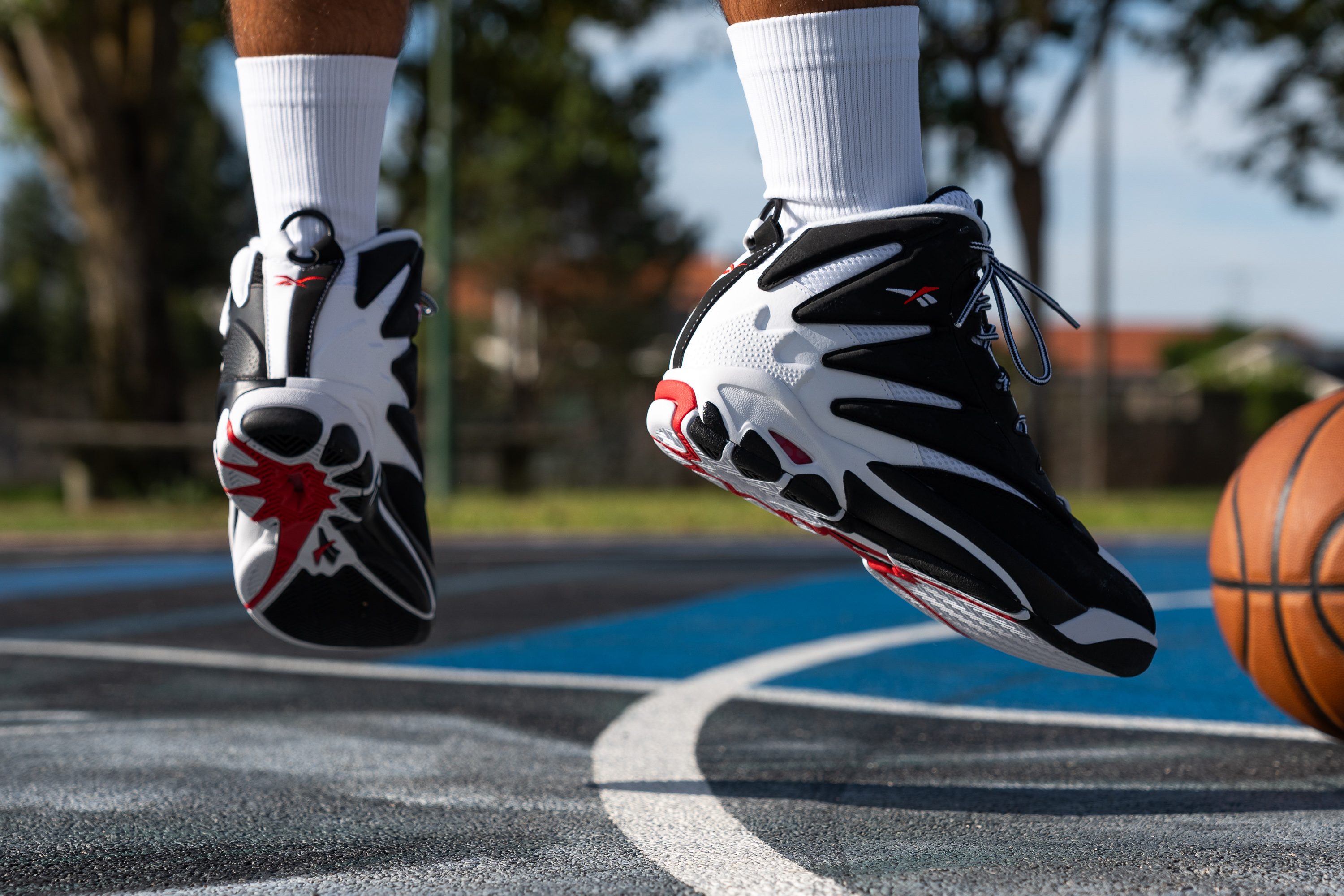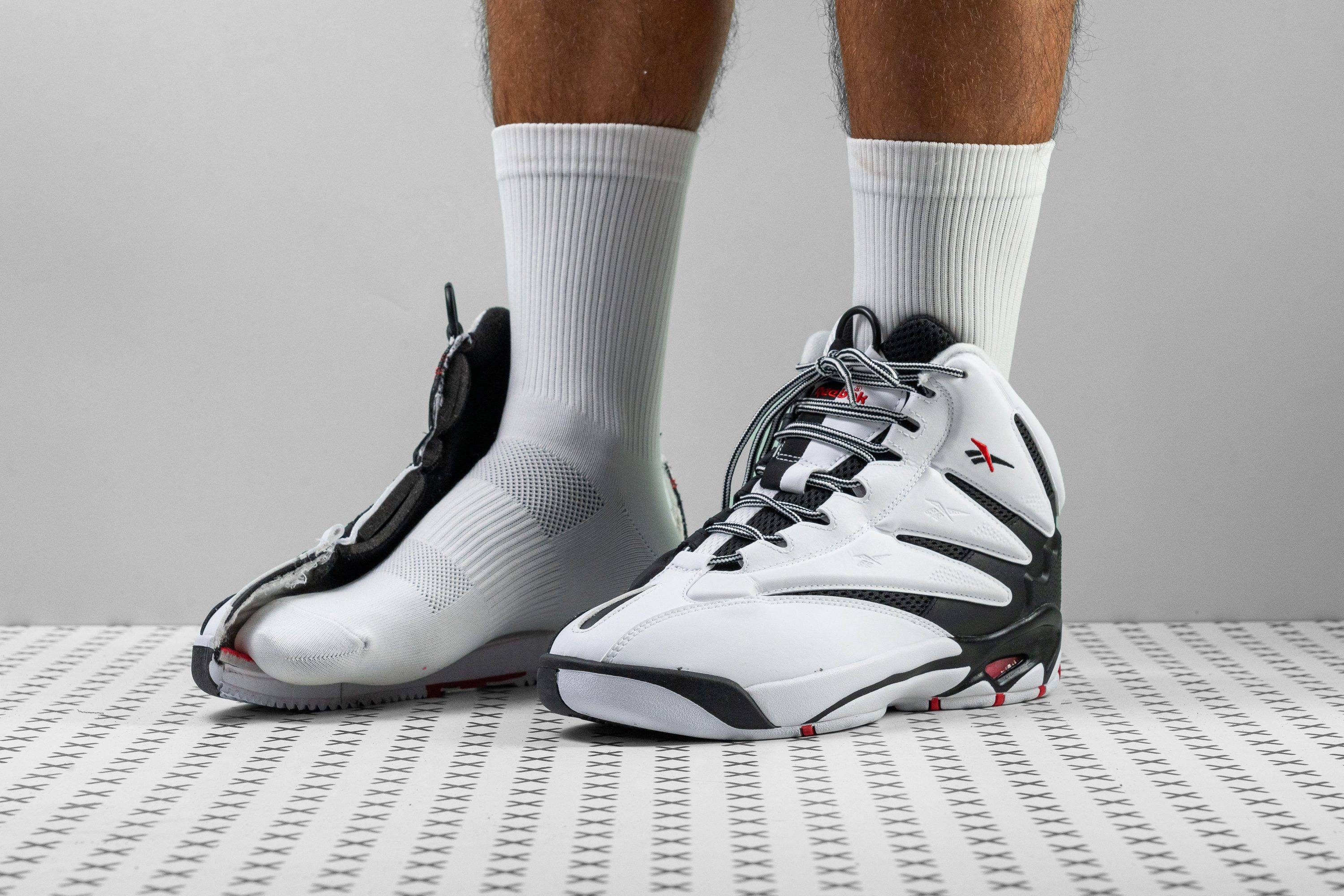Our verdict
- Top pick in best Reebok basketball shoes
Pros
- A Blast from the past!
- Great value for money
- Incredible wear resistance
- Great impact protection
- Reliable traction
- Very secure support and lockdown
- Unique asymmetrical colorway
Cons
- Lacks ventilation big-time
- Very heavy
- Narrow platform
Audience verdict
Comparison
The most similar basketball shoes compared
+ + Add a shoe | |||||
|---|---|---|---|---|---|
| Audience score | 78 Decent! | 89 Great! | 90 Great! | 89 Great! | |
| Price | $150 | $170 | $130 | $170 | |
| Signature | - | Allen Iverson | Allen Iverson | Allen Iverson | |
| Top | Mid | Mid | Mid | Mid | |
| Ankle support | ✗ | ✓ | ✗ | ✗ | |
| Weight lab | 17.5 oz / 495g | 16.9 oz / 479g | 16.3 oz / 461g | 15.1 oz / 427g | |
| Breathability | Warm | Breathable | Moderate | Warm | |
| Outsole durability | Bad | Good | Good | Bad | |
| Drop lab | 11.9 mm | 10.3 mm | 13.7 mm | 13.1 mm | |
| Heel stack lab | 33.0 mm | 31.4 mm | 38.4 mm | 32.2 mm | |
| Forefoot | 21.1 mm | 21.1 mm | 24.7 mm | 19.1 mm | |
| Size | True to size | True to size | True to size | Slightly small | |
| Midsole softness | Firm | Firm | Balanced | Balanced | |
| Stiffness | Stiff | Stiff | Stiff | Stiff | |
| Torsional rigidity | Stiff | Moderate | Stiff | Stiff | |
| Heel counter stiffness | Moderate | Flexible | Flexible | Flexible | |
| Width / fit | Wide | Medium | Medium | Wide | |
| Toebox width | Narrow | Medium | Medium | Narrow | |
| Midsole width - forefoot | Very narrow | Average | Narrow | Average | |
| Midsole width - heel | Narrow | Wide | Average | Average | |
| Heel padding durability | Good | Good | Bad | Decent | |
| Toebox durability | Good | Decent | Good | Good | |
| Insole thickness | Average | Average | Average | Average | |
| Outsole hardness | Average | Very hard | Very hard | Soft | |
| Outsole thickness | Thick | Average | Average | Thick | |
| Heel tab | Finger loop | None | None | Finger loop | |
| Retro | ✓ | ✗ | ✓ | ✓ | |
| Ranking | #50 Bottom 5% | #14 Top 27% | #7 Top 14% | #19 Top 36% | |
| Popularity | #48 Bottom 9% | #28 Bottom 47% | #44 Bottom 16% | #42 Bottom 20% |
Who should buy
This is a very special pair of Reebok shoes. We think that you will appreciate it a lot if:
- you are feeling nostalgic and want a "blast" from the past (straight from 1996)
- you're a fan of Nick Van Exel and want to experience the shoe that he once donned
- you're grand on the classic Reebok midsole technologies like the Hexalite cushioning
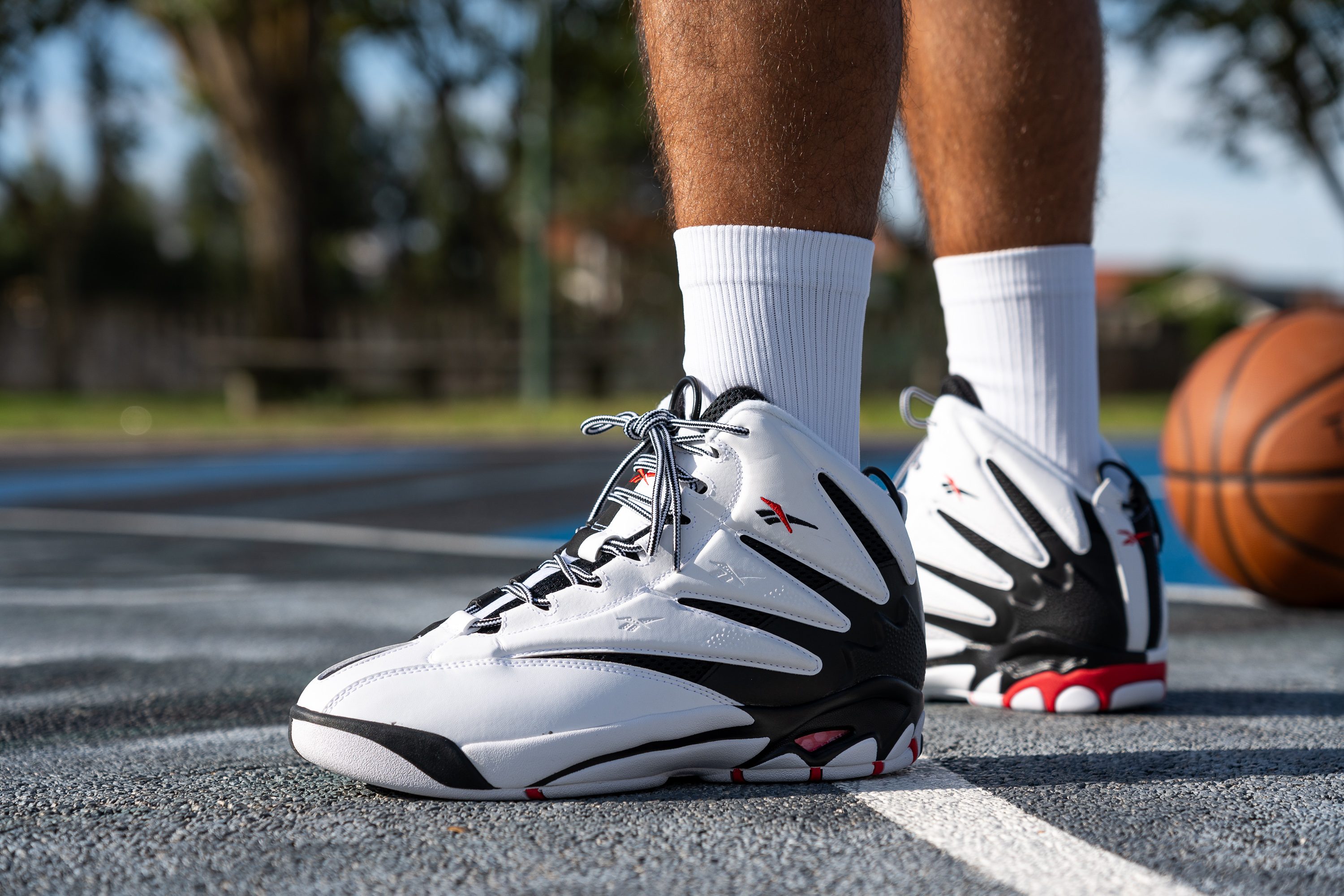
Who should NOT buy
These days, the Reebok Blast is no longer targeted as a performance shoe and it has shifted into the brand's Classics collection.
If you want an actual hoop shoe, consider the Nike Cosmic Unity 3 or the Jordan Zion 2. Both are MUCH lighter and are designed with the actual sport in mind.
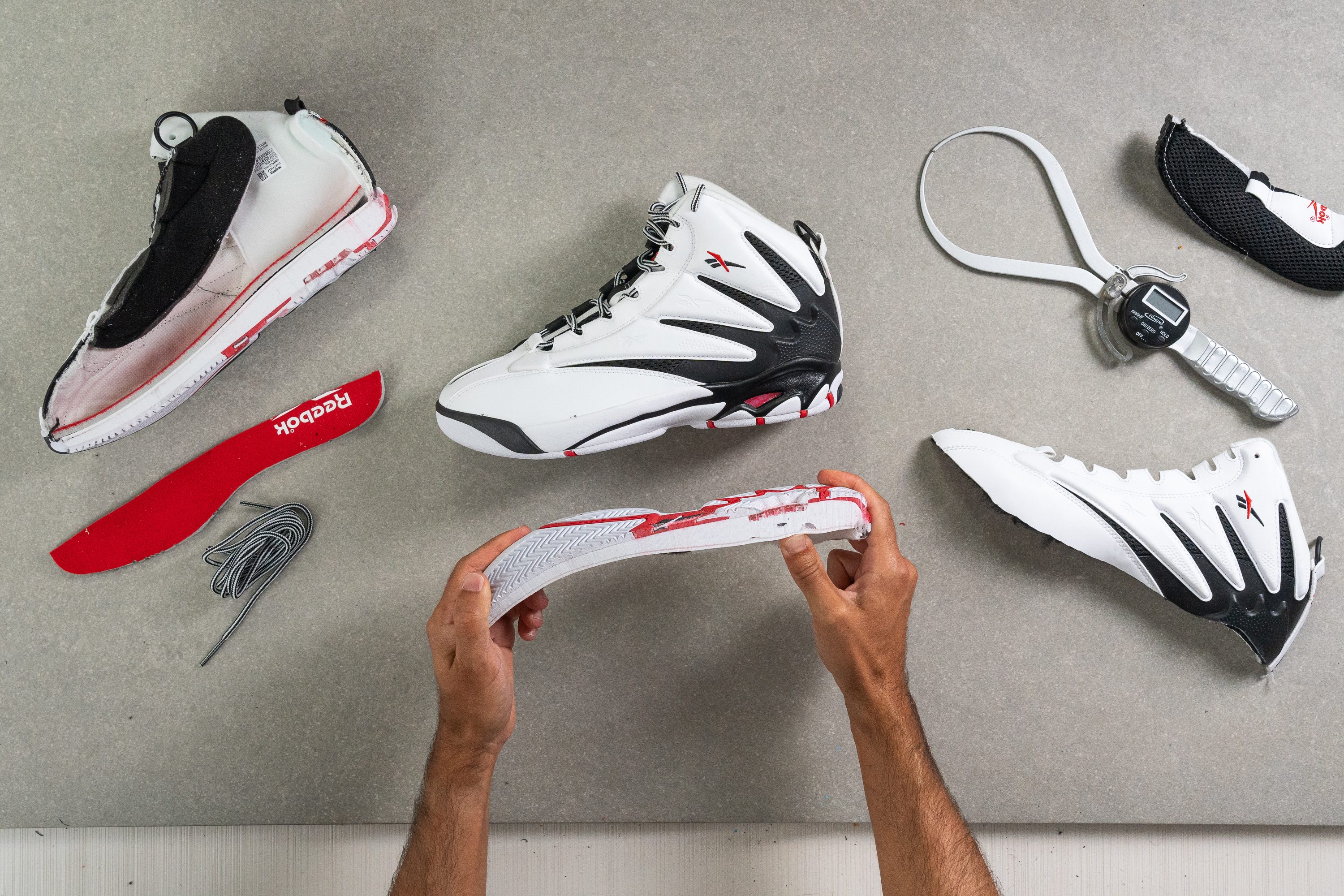
Cushioning
Heel stack
For such a heavy jumbo, we weren't surprised to find that the shoe's stack height is above average too.
Using a caliper, we measured the heel stack at 33.0 mm, which is 3 mm thicker than average. We felt plenty of impact protection and could also recommend it for heavy wearers.
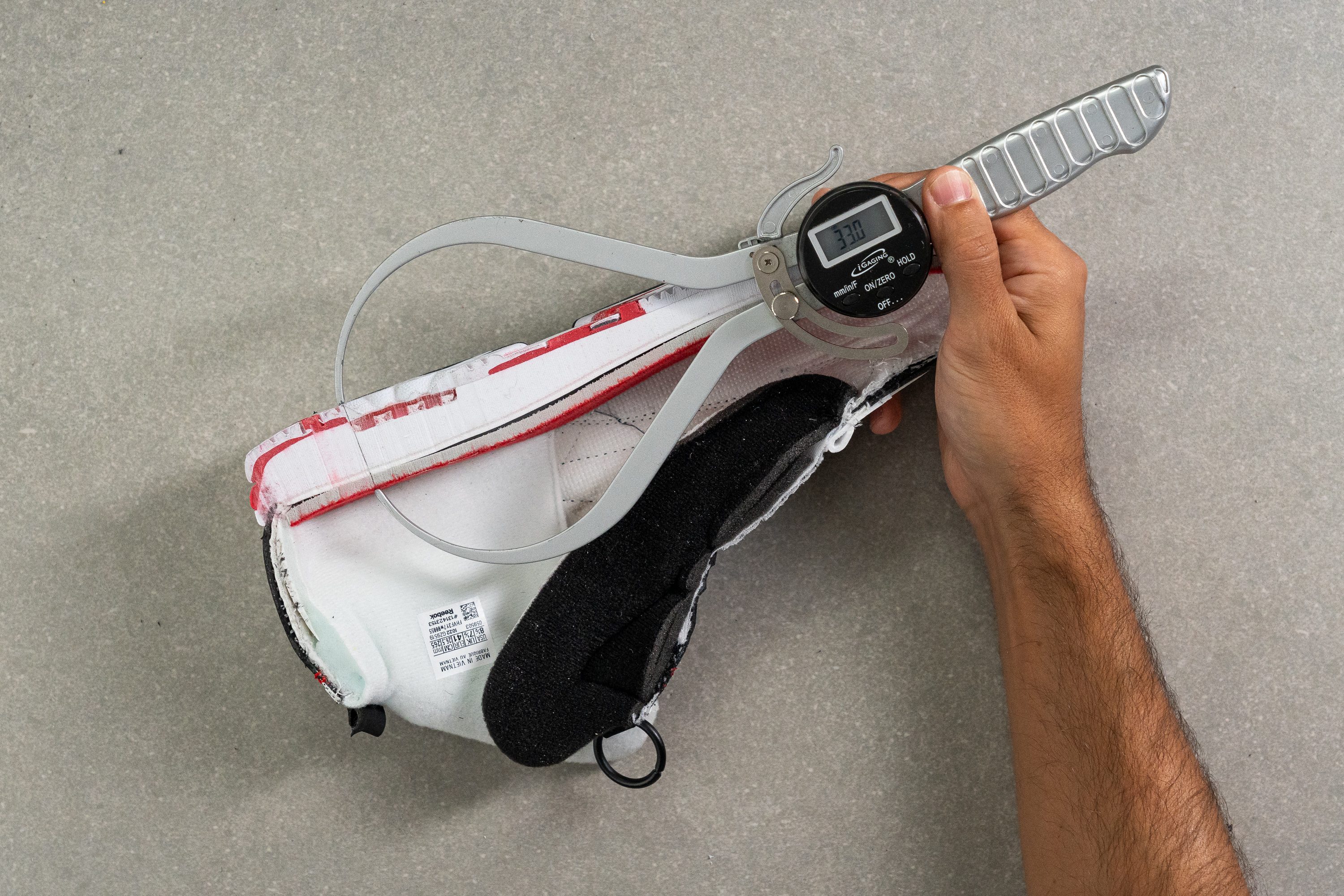
| Blast | 33.0 mm |
| Average | 28.8 mm |
Forefoot stack
Under the toes, we found that the shoe's cushioning is pretty average.
Our caliper returned 21.2 mm and it's a standard amount of forefoot stack for a hoop shoe.
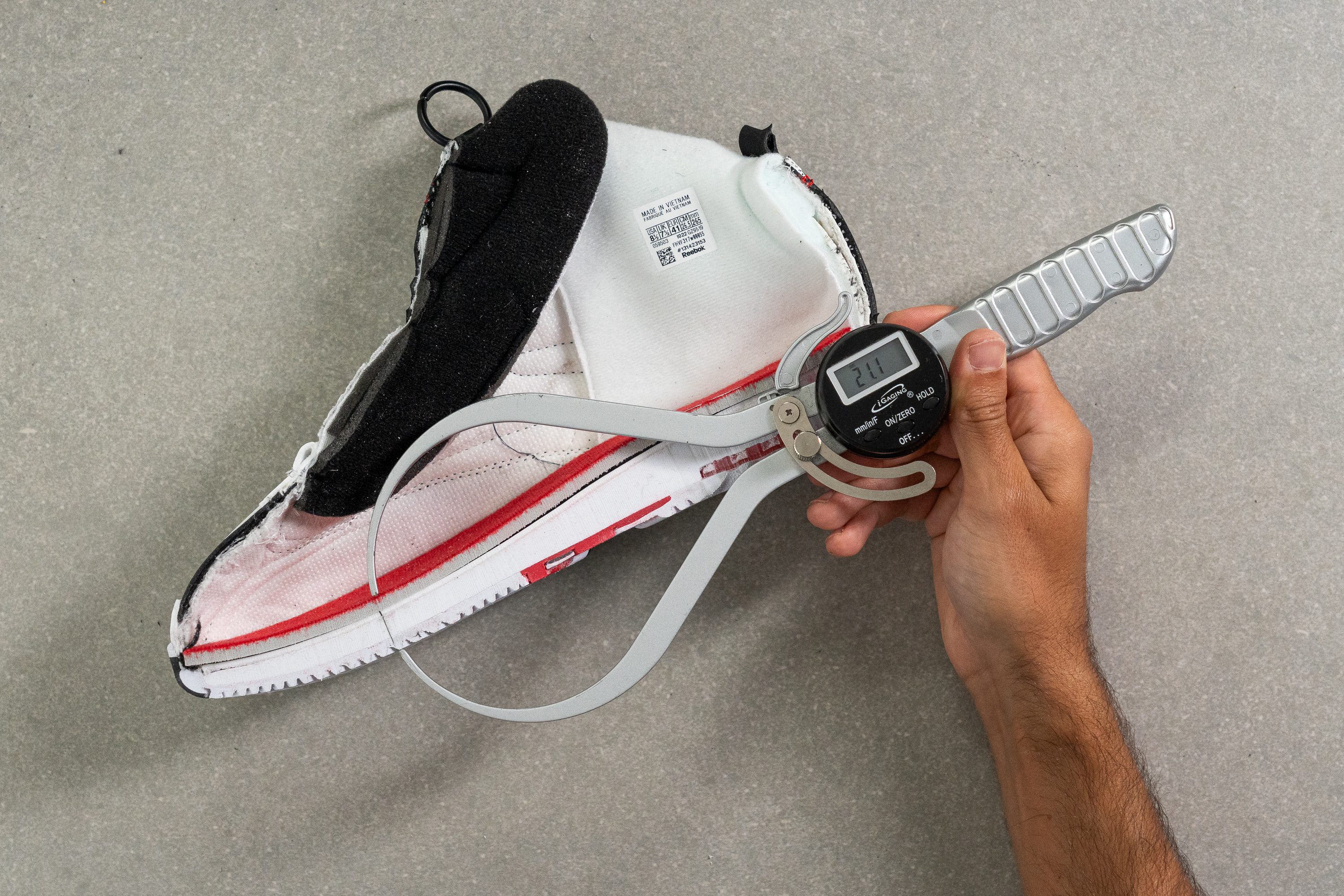
| Blast | 21.1 mm |
| Average | 21.4 mm |
Drop
With its higher heel stack, the Reebok Blast also comes with a taller heel-to-toe drop. Based on our own stack measurements, it turned out to be 11.9 mm, about 4 mm taller than average!
This means that there is more cushioning and shock absorption under the heel which is optimal if you land on the heels a lot.
It also makes the shoe more comfortable for casual wear as the heel needs more protection when striking the ground.
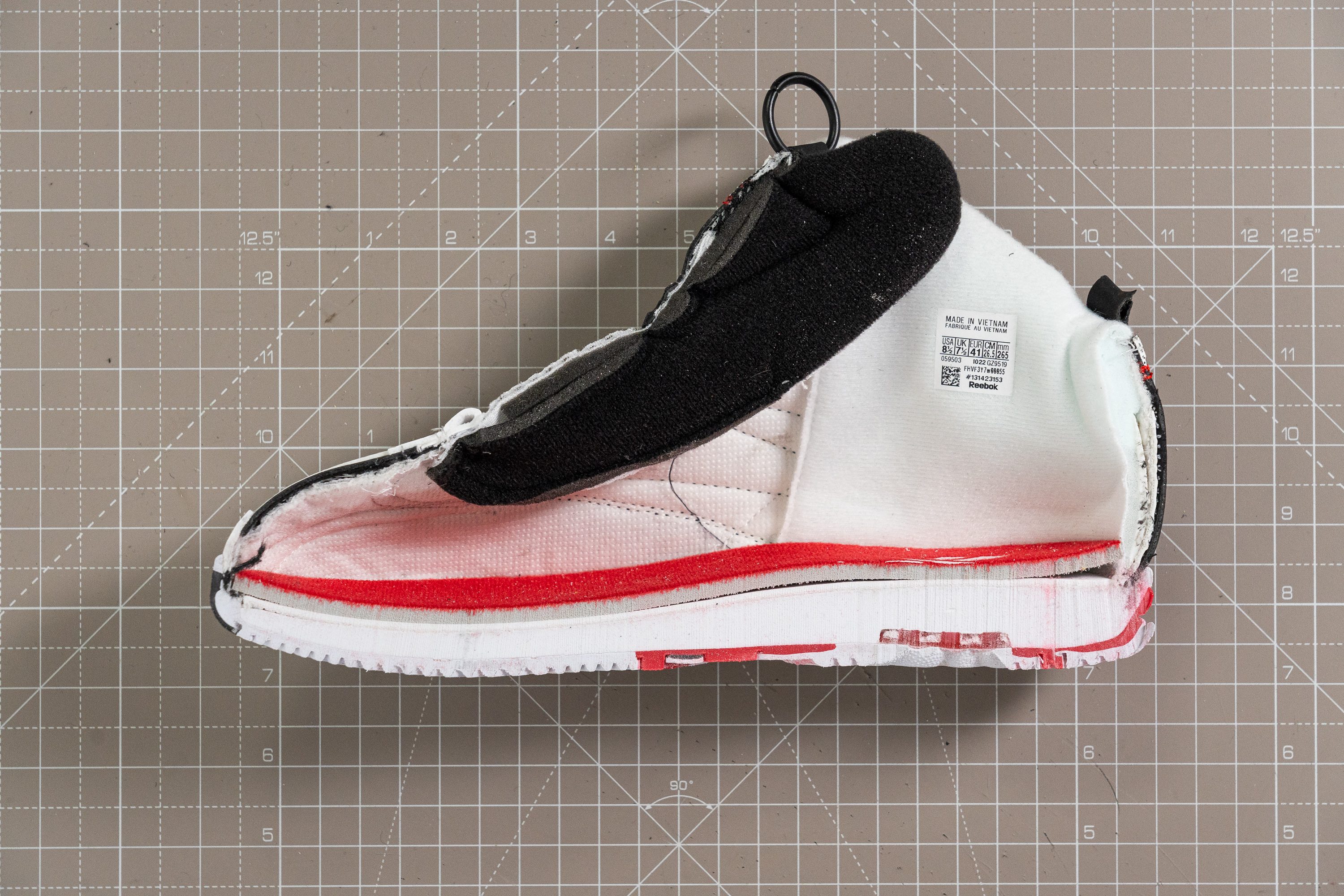
| Blast | 11.9 mm |
| Average | 7.4 mm |
Midsole softness
Time traveling straight from 1996, the Reebok Blast brings with it some artifacts of the past! We're talking about the Hexalite technology which used to be the brand's flagship cushioning.
Embedded into the foam underneath the heel, this honeycomb-like unit helped the shoe feel so protective. But do keep in mind that it is firm as hell. Back in the '90s, people were yet to invent plush cushioning.
Turning to our durometer, we got a reading of 35.9 HA which is 26% firmer than the average basketball shoe foam!
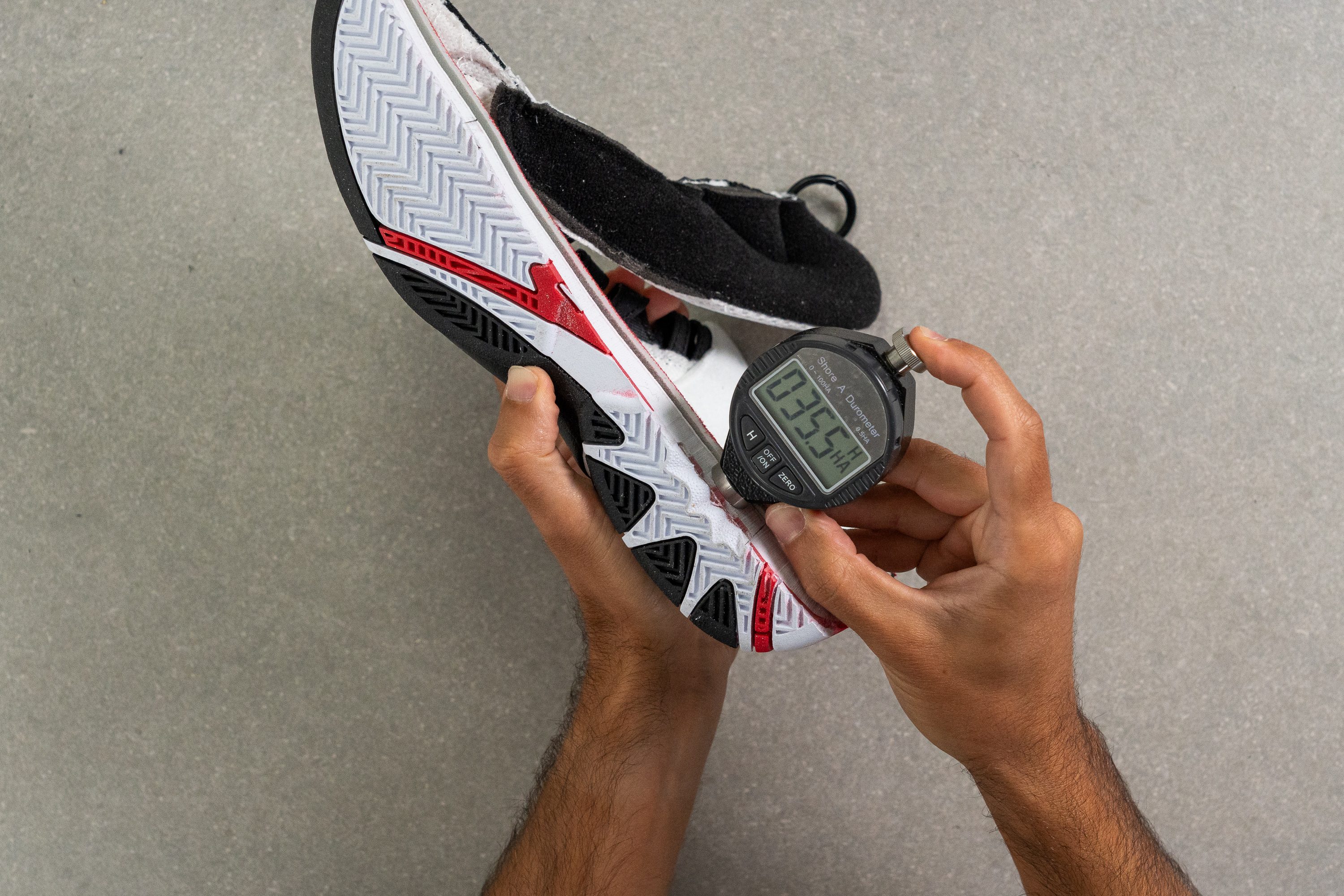
| Blast | 35.9 HA |
| Average | 24.3 HA |
Size and fit
Size
Reebok Blast fits true to size (30 votes).
Width / Fit
The shoe's fit did not disappoint our medium-sized feet! We felt like there was enough toebox space to wear the Blast comfortably even for several hours straight.
To support our experience with a caliper measurement, we got a reading of 103.3 mm in the widest part of the toebox. That's even a couple of millimeters wider than average.
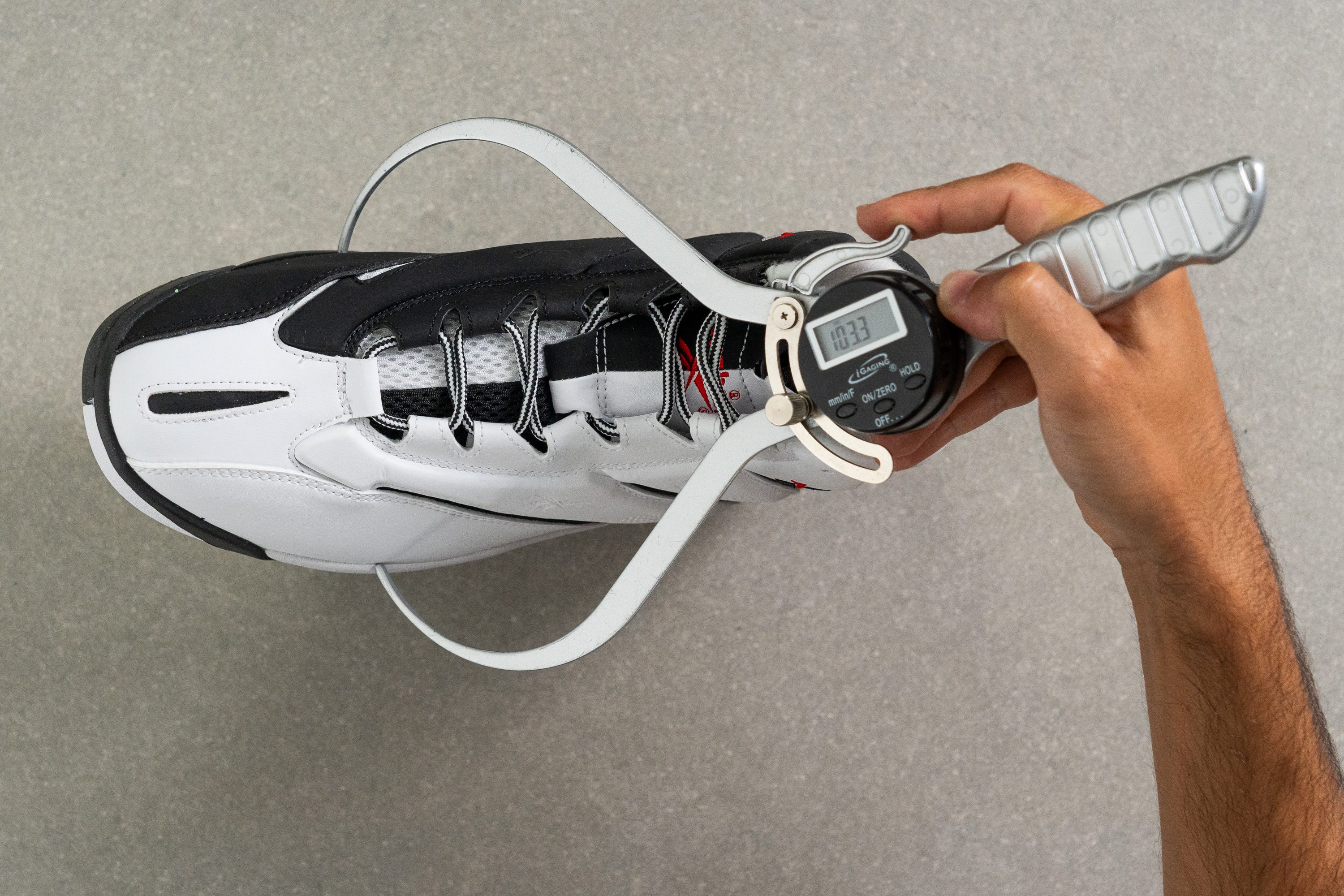
This test follows an older methodology, which is why you don't see recently tested shoes in the chart. Results from different methodologies can not be compared.
| Blast | 103.3 mm |
| Average | 101.6 mm |
Toebox width
The shoe does taper slightly towards the toes. Our caliper shows 73.7 mm of toebox width around the big toe. That's 3 mm narrower than average.
If you have wide feet and this makes you concerned, try getting half a size larger.
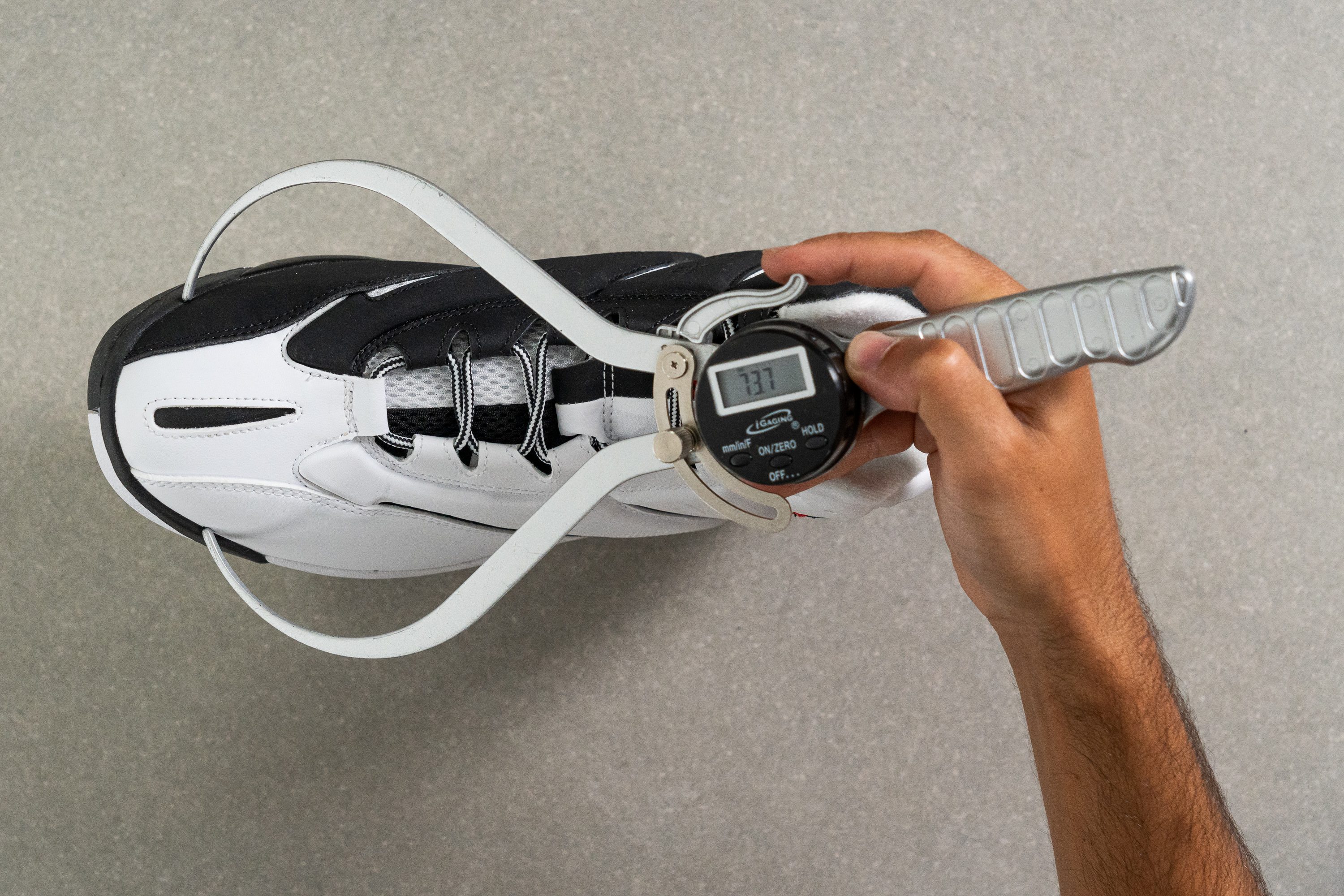
This test follows an older methodology, which is why you don't see recently tested shoes in the chart. Results from different methodologies can not be compared.
| Blast | 73.7 mm |
| Average | 76.9 mm |
Laces
The round dual-chrome laces of the Reebok Blast were super easy to cinch down and achieve a tight fit.
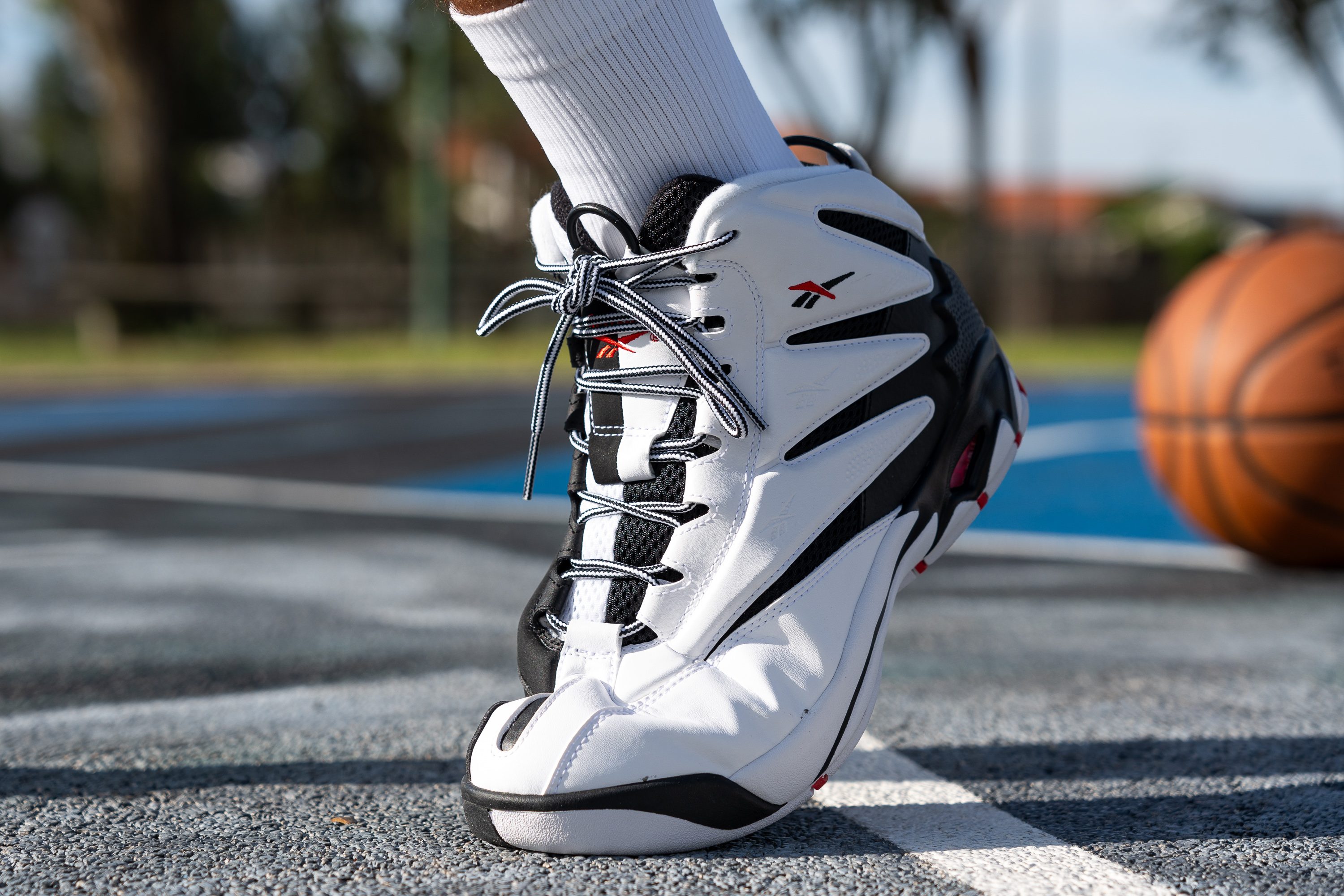
Flexibility / Stiffness
Considering the shoe's sturdy personality, we were pleasantly surprised that it remained pliable enough for comfortable heel-to-toe transitions.
Measuring the shoe's stiffness in our lab, we found that it takes 38.7N of force to bend the shoe to a 90-degree angle. Based on our force gauge measurements, it is about the same as it takes on average.
This test follows an older methodology, which is why you don't see recently tested shoes in the chart. Results from different methodologies can not be compared.
| Blast | 38.7N |
| Average | 38.8N |
Weight
Let's name things for what they are. The Reebok Blast is a beast!
It is by far the heaviest basketball shoe in our roster at 17.5 oz (495g) in a men's US size 9! A hole 3 ounces heavier than average.
This is certainly one of the deal-breakers when it comes to the shoe's performance. If you plan to use it for the actual sport of course.
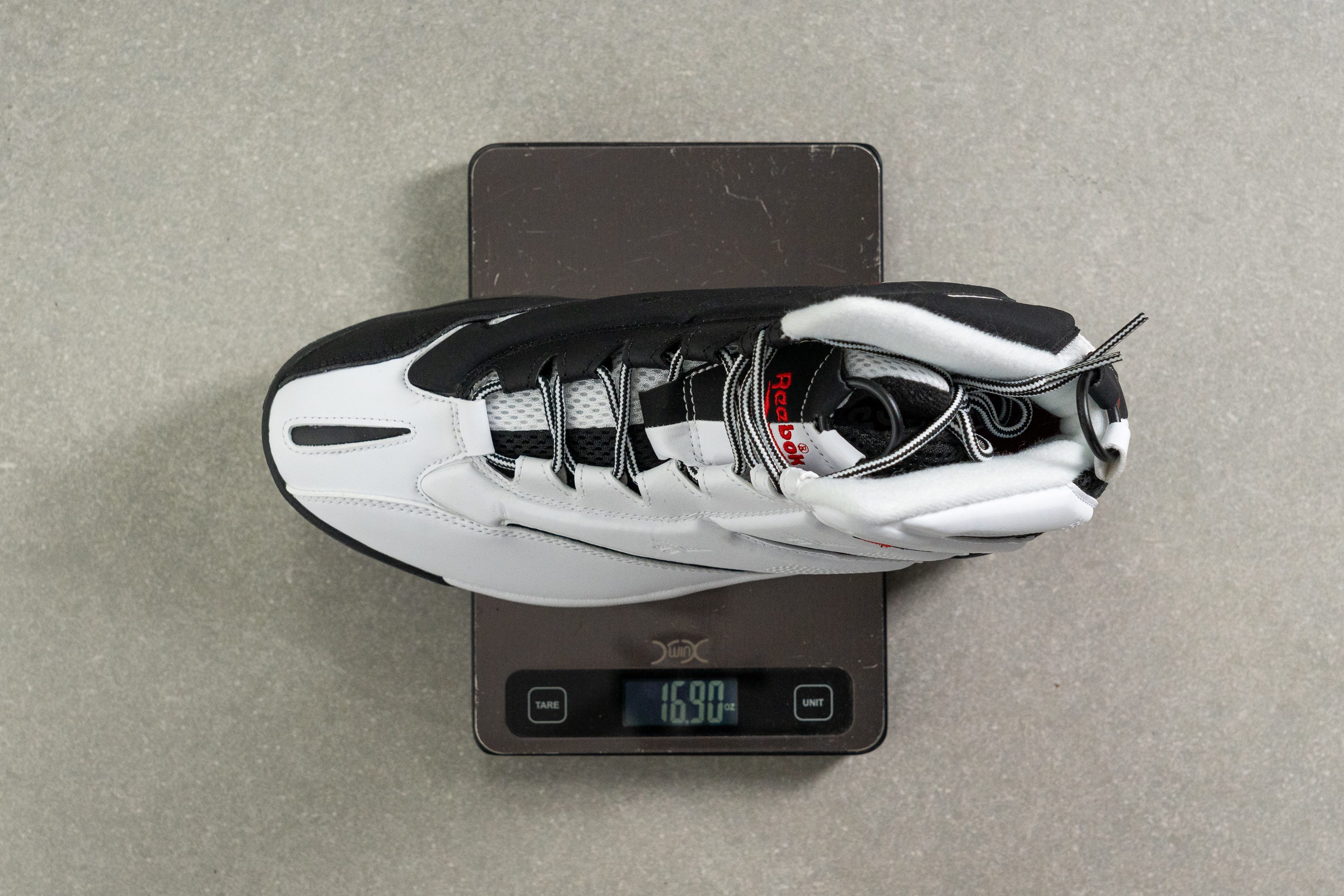
| Blast | 17.5 oz (495g) |
| Average | 13.8 oz (391g) |
Breathability
This Reebok shoe is damn hot! That is just as true about the Blast's style as it is about its in-shoe feel!
We seriously warn you against wearing this little sauna for the feet on a warm summer day. As you can see from our smoke-pumping test below, the amount of smoke (or air) that manages to pass through the shoe's massively layered upper is minuscule!
We had no chance but to give this shoe the lowest breathability score of 1 out of 5. For reference, that's the same score that waterproof hiking boots get.
To make it even clearer, we have put the shoe's upper over a bright light in a transparency test below. The goal was to see if there were any hints of ventilation holes that we possibly missed. Spoiler alert: there were none.
But we don't give up that easily. We sure used a microscope to zoom in on the shoe's mesh parts.
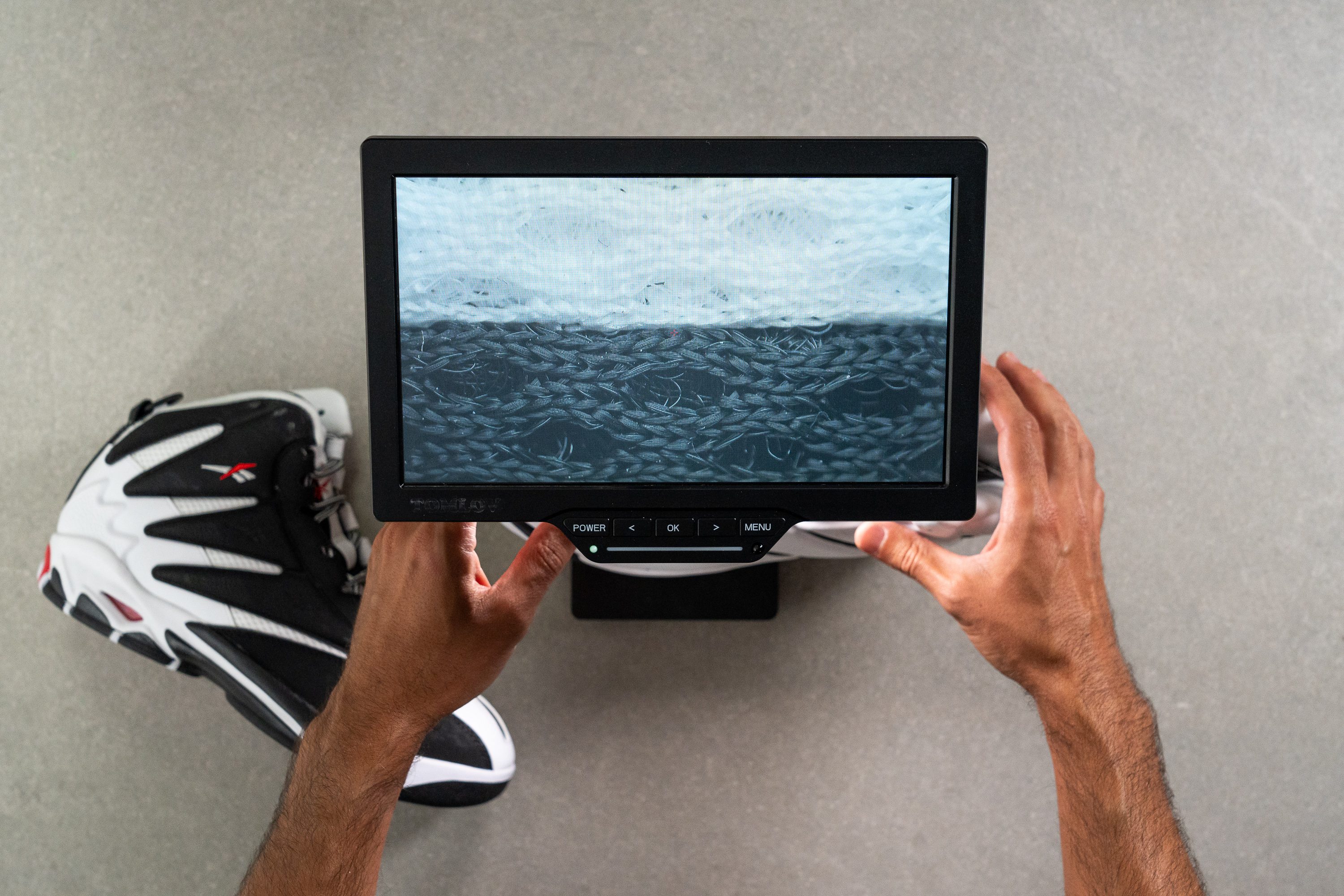
As you can see, there is not much hope for ventilation here either.
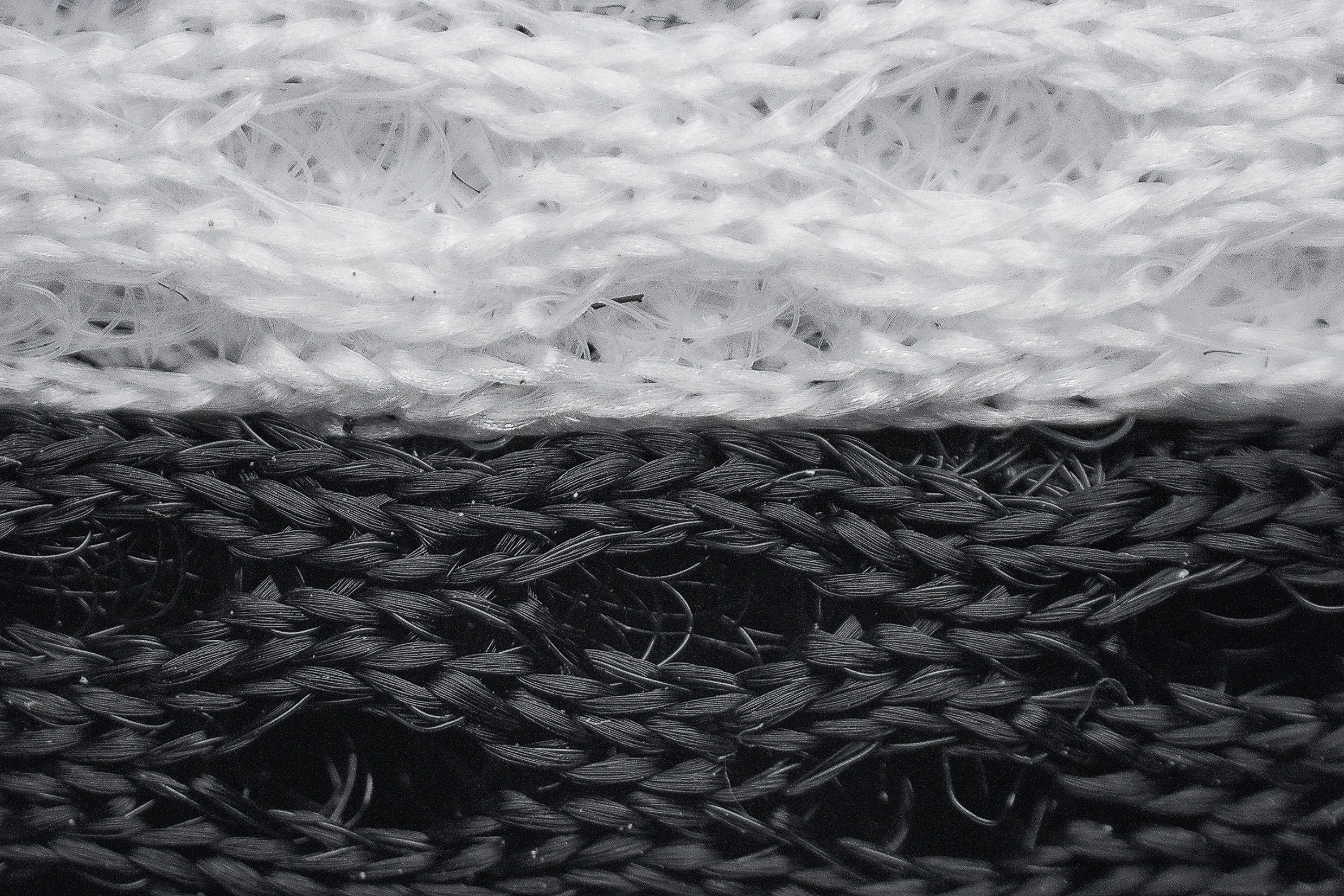
| Blast | 1 |
| Average | 2.5 |
Stability
Lateral stability test
The shoe's stability aspect is a mixed bag. On one hand, its sturdy upper brings with it an immense amount of side support and lockdown. There is no give in its heavily layered and textured sidewalls.
Once this Reebok shoe was on, our feet felt 100% confined. In the best sense of the word of course.
But there is a "but" and it's the shoe's surprisingly narrow platform. It kind of holds the Blast back from being ultimately stable, especially when engaging in the game of basketball.
Torsional rigidity
But let's not write the Reebok Blast off just yet! The shoe's got a crazy amount of torsional rigidity thanks to its sturdy upper and firm midsole.
We assessed its stiffness in a manual test where we tried twisting the shoe with our hands. And it wouldn't yield! It was so convincing that we couldn't give it a score any lower than the maximum 5 out of 5 for torsional stiffness.
| Blast | 5 |
| Average | 4.5 |
Heel counter stiffness
And all of that ankle padding... Geez! Could we feel any more secure?
Even though we rated the heel counter stiffness as 4 out of 5, where 5 is the stiffest, it felt so mind-blowingly supportive!
There is not even a hint of heel slipping or sliding in this couch of a shoe.
| Blast | 4 |
| Average | 3.8 |
Midsole width - forefoot
Now to the tricky part.
Apparently, wide platforms were not a thing back in the day? Or was it just because Reebok intended the Blast as a casual sneaker only?
Whatever the reason is, the Reebok Blast's base remains narrower than average. Our caliper shows only 106.6 mm in the widest part of the forefoot. ALmost 7 mm narrower than average.
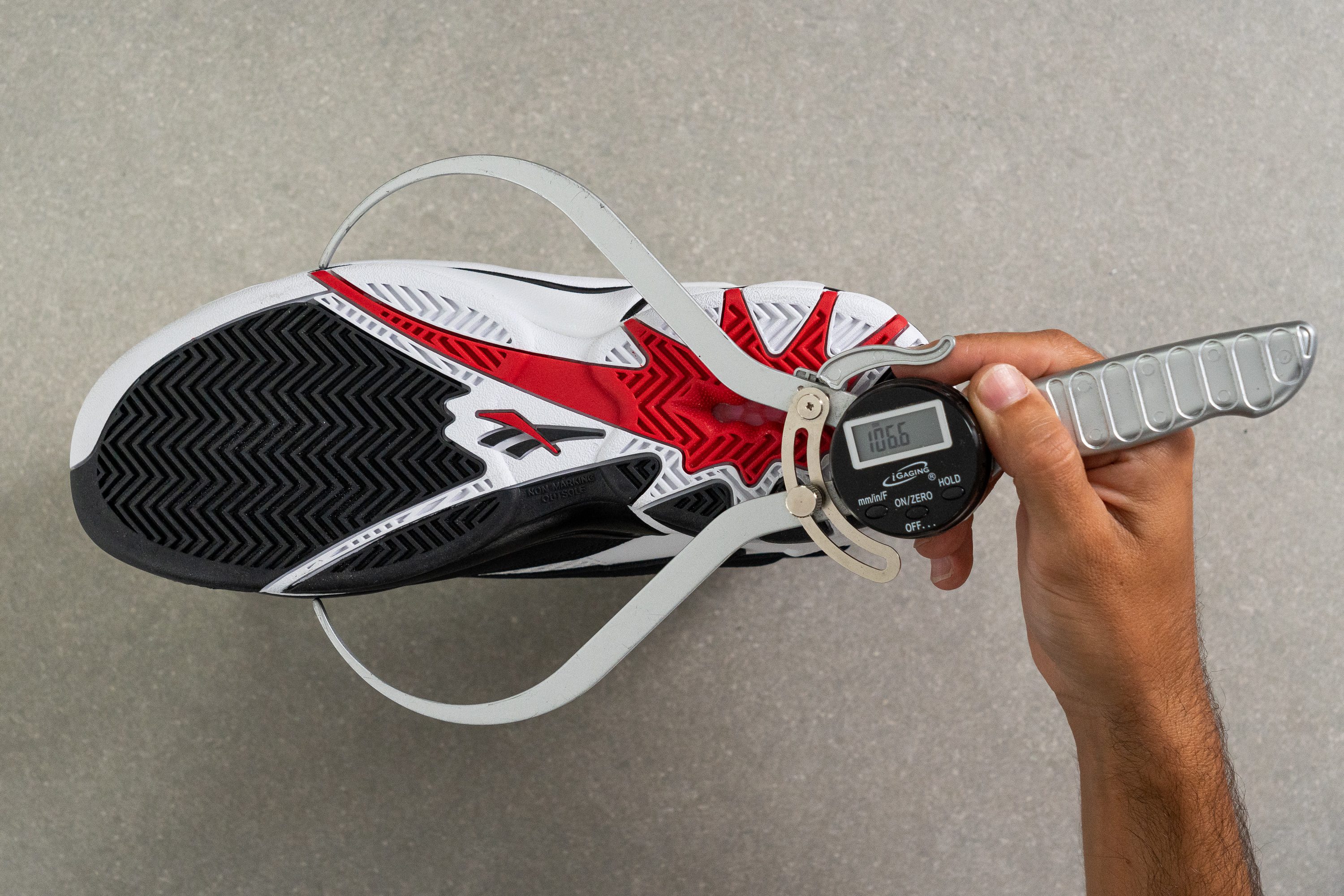
| Blast | 106.6 mm |
| Average | 114.8 mm |
Midsole width - heel
As for the widest part of the heel, we got only 83.3 mm in the widest part. Also nearly 8 mm narrower than the average basketball shoe.
So if you want to play a game or two in the Reebok Blast, just be aware of that when making forceful and dynamic lateral movements.
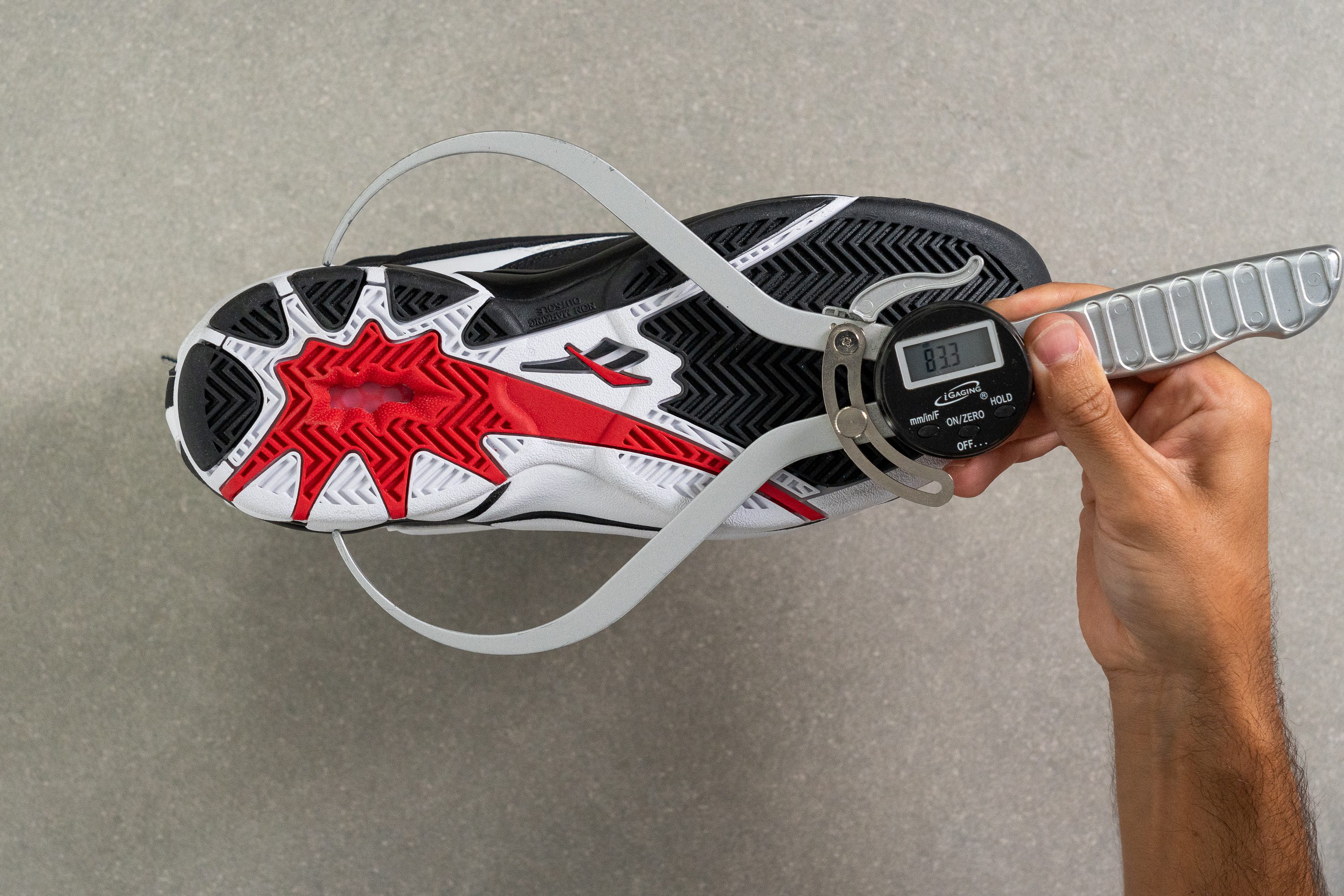
| Blast | 83.3 mm |
| Average | 89.7 mm |
Durability
Toebox durability
Now to the good news.
Getting the Reebok Blast means investing in a shoe that can last you for YEARS! And we don't just mean sitting on your heart-warming sneaker shelf. We are talking real-world use and even occasional hopping!
As you can see from the video above, the struggle was real. For the Dremel. We applied the tool for as long as 12 seconds at an unforgiving speed of 5K RPM and what did it do? NOTHING! A mere scratch that is not even visible from the eye view.
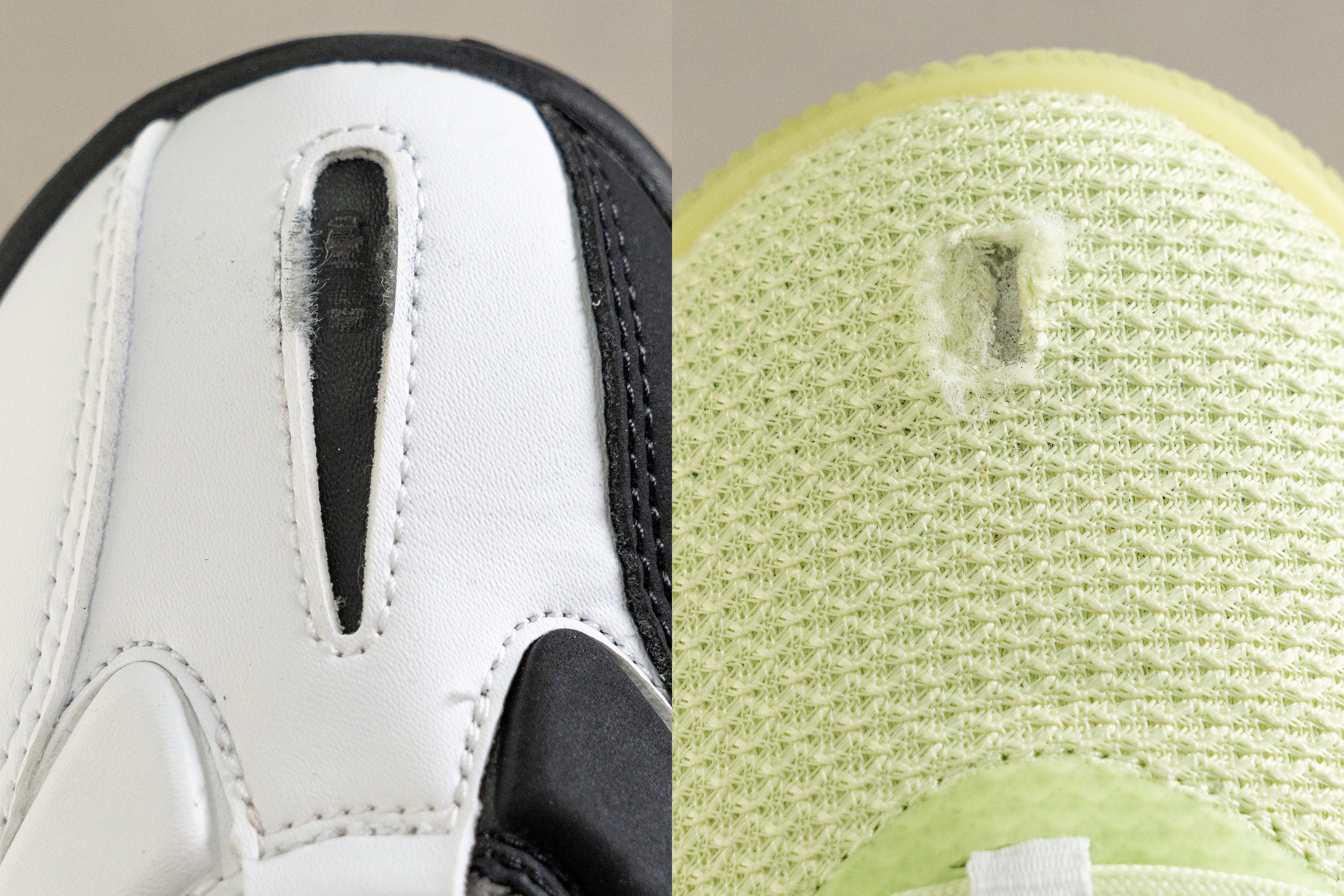
Here is a quick comparison to what the same test did to the mesh upper on an Adidas shoe.
We are looking at the tank here on te left.
| Blast | 5 |
| Average | 3.7 |
Heel padding durability
Even such a sensitive area as the heel collar lining did not give in to our Dremel one bit!
Where most shoes get torn apart, this guy looks like it got tickled. Amazing durability! The Reebok Blast gets another 5 out of 5 for abrasion resistance.
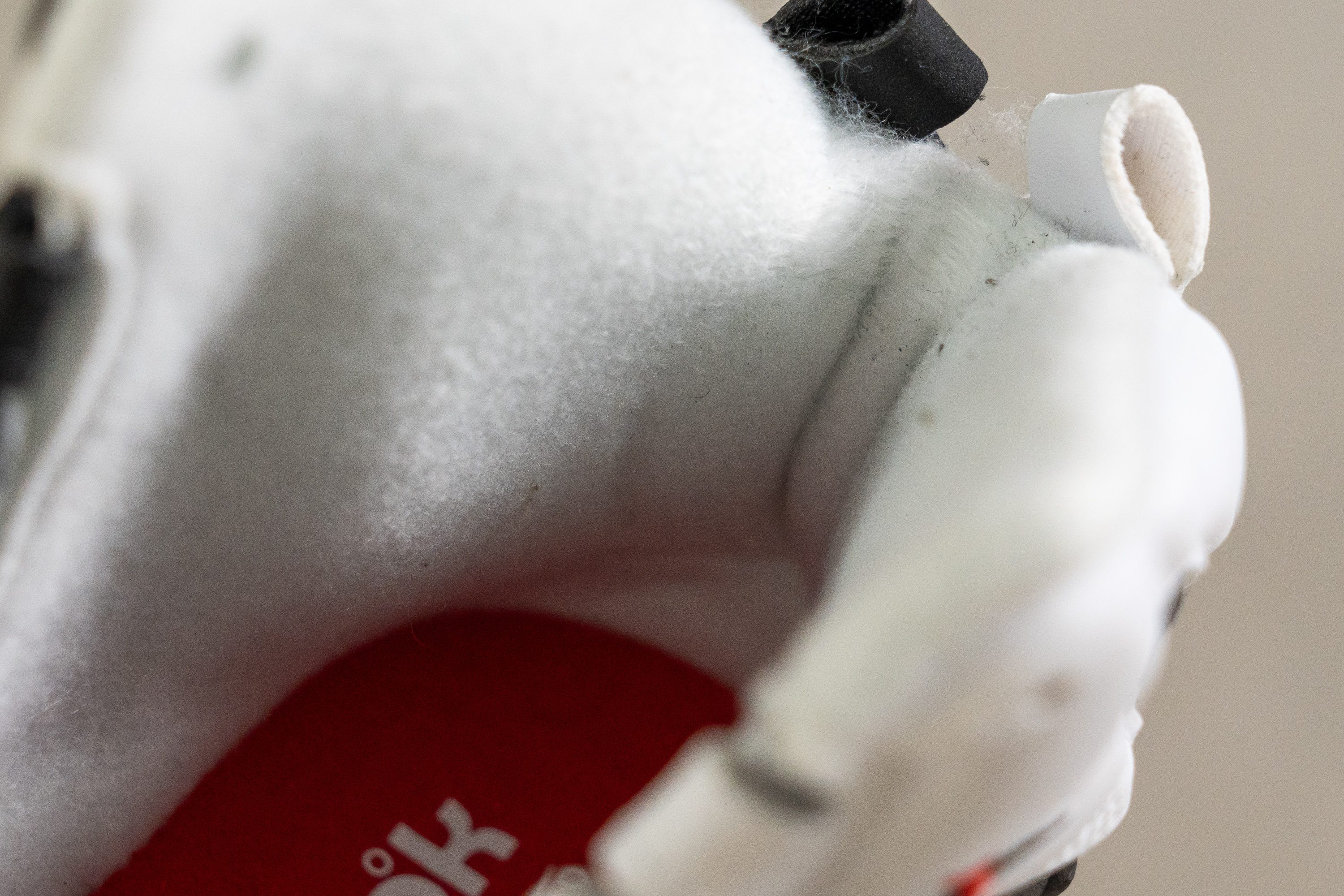
| Blast | 5 |
| Average | 3.7 |
Outsole hardness
The Blast raised our hopes high for durability and we expected to be impressed by the outsole too.
Using a durometer, we checked the hardness of rubber and it proved to be firmer than average at 84.7 HC. This is important as harder outsoles usually take much more time and wear to get destroyed.
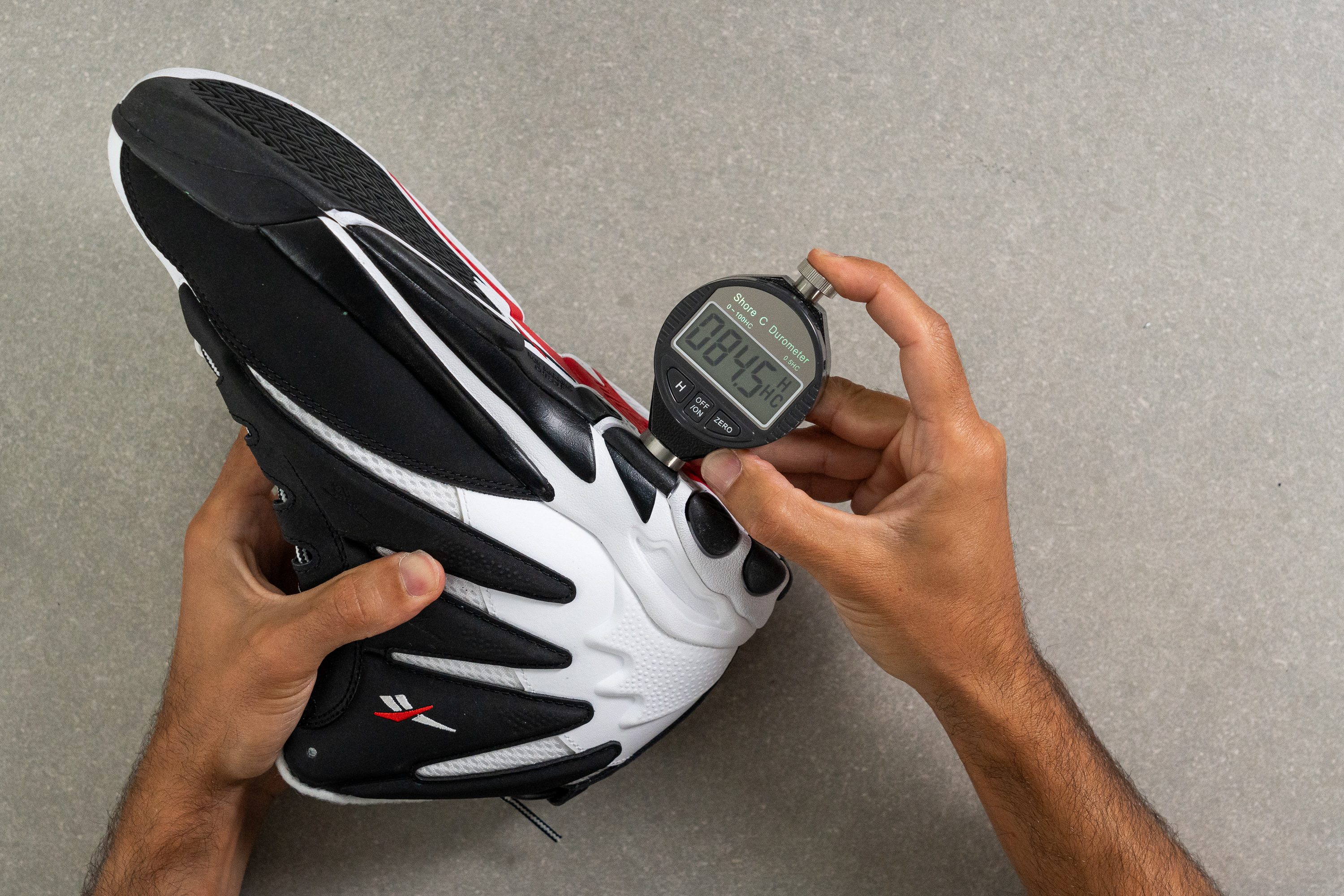
| Blast | 84.7 HC |
| Average | 81.5 HC |
Outsole durability
However, the Dremel test made us a little concerned.
After 22 seconds of drilling, we measured the damage with a tread gauge and found it to be 1.7 mm deep. That is a bit deeper than what we see in basketball shoes on average but not so critical.
What it means is that the rubber is likely to wear out a bit faster than usual on outdoor courts.
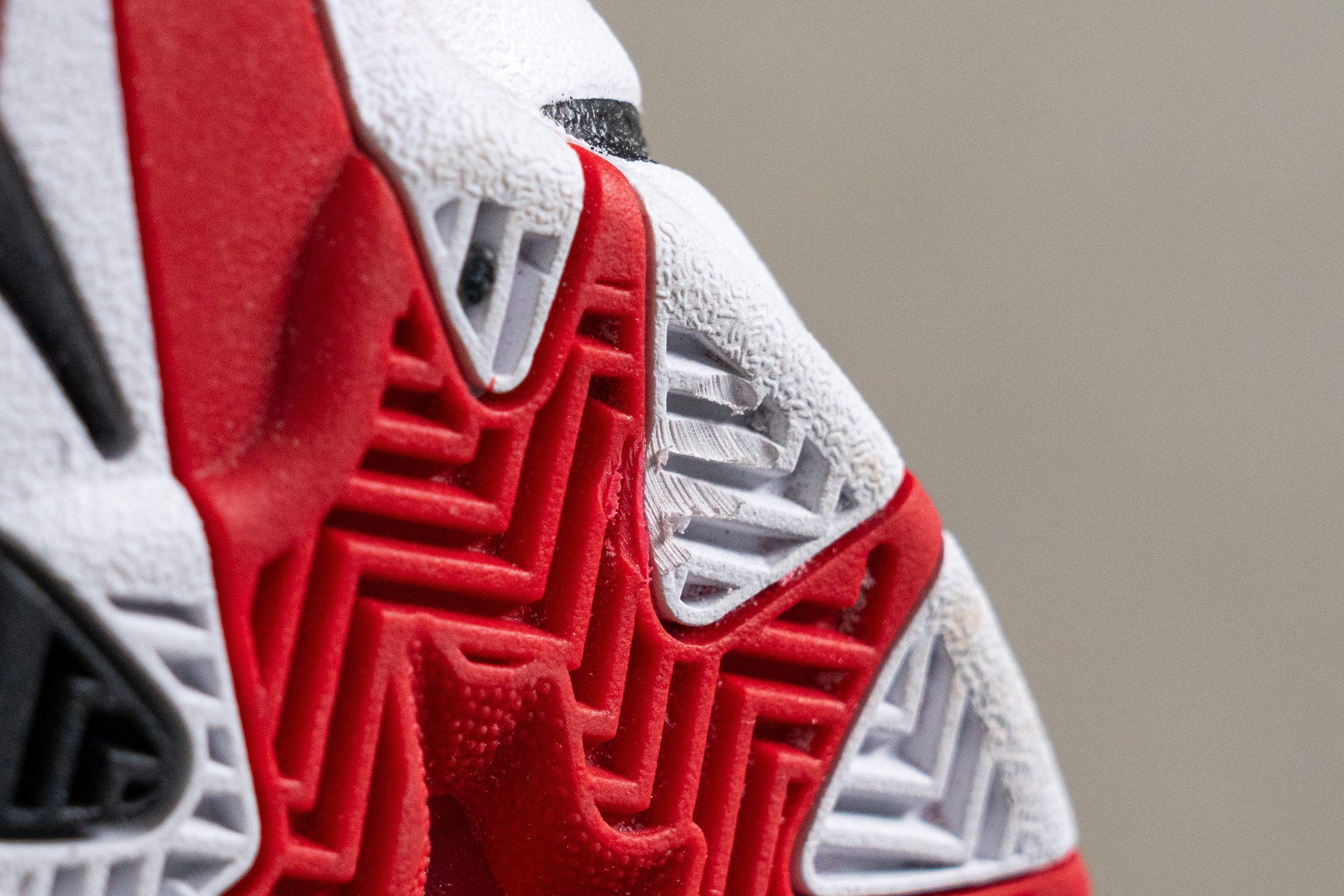
| Blast | 1.7 mm |
| Average | 1.0 mm |
Outsole thickness
Luckily, Reebok took care of that problem by placing a generous slab of rubber at the bottom.
We couldn't believe our caliper when it showed 6.0 mm of thickness! That will certainly take a long time to wear out.
To sum it up, the shoe's outsole durability looks just as promising!
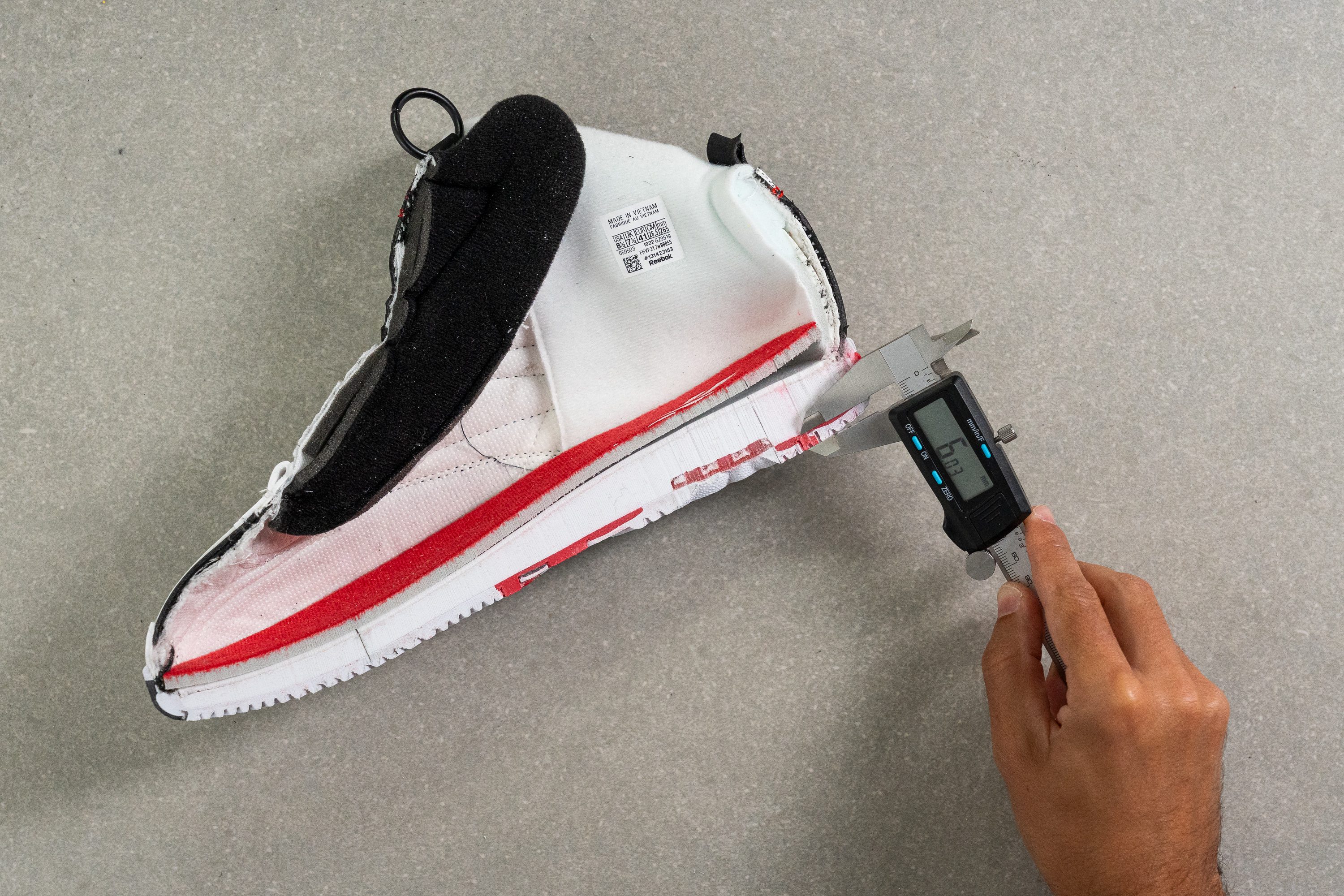
| Blast | 6.0 mm |
| Average | 4.0 mm |
Misc
Insole thickness
For added buffer, the Reebok Blast features a nicely padded insole. We measured its thickness at 4.7 mm in the heel.
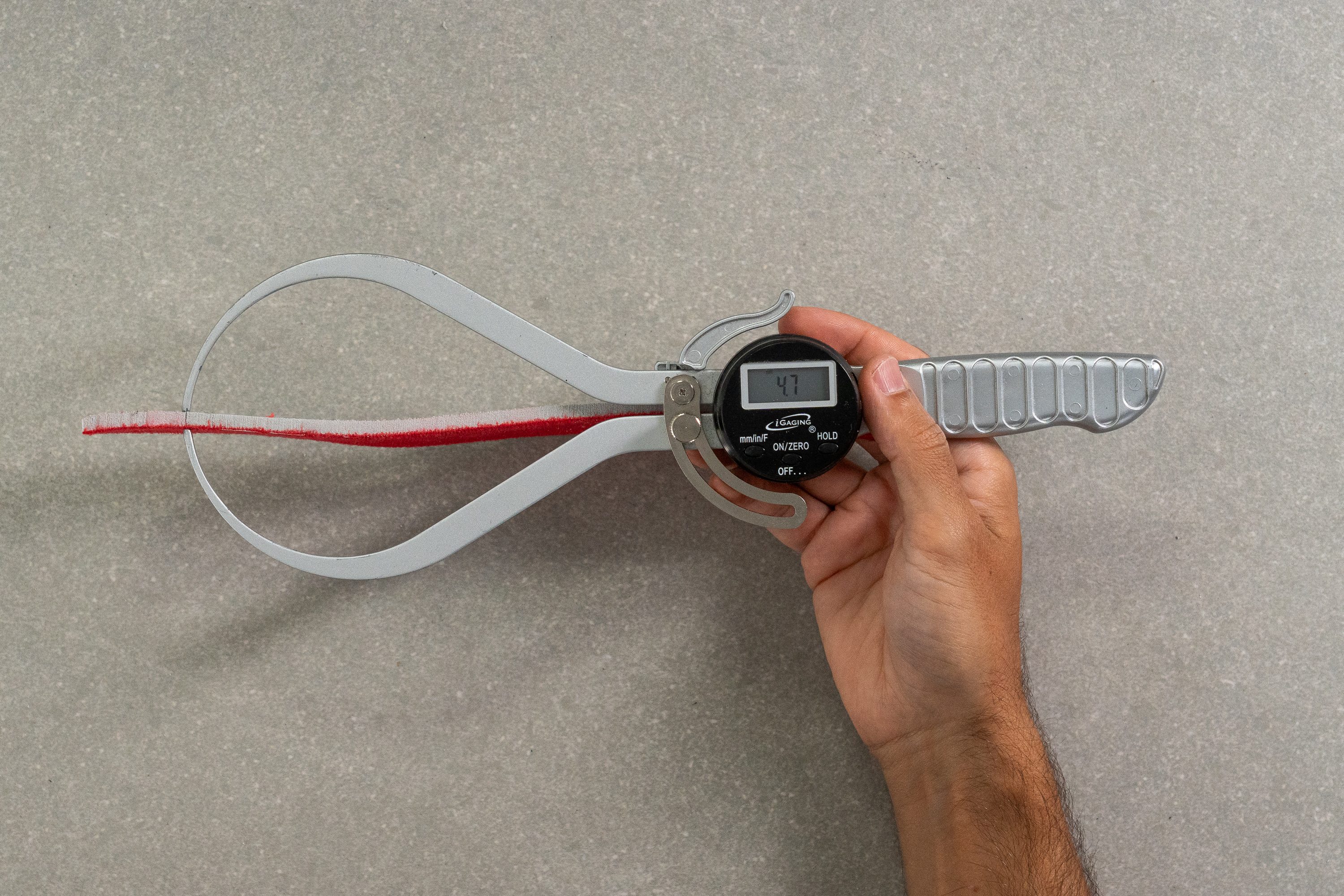
| Blast | 4.7 mm |
| Average | 4.9 mm |
Removable insole
In case you need to use a custom insert or orthotics, it's easy to do thanks to the shoe's removable insole.
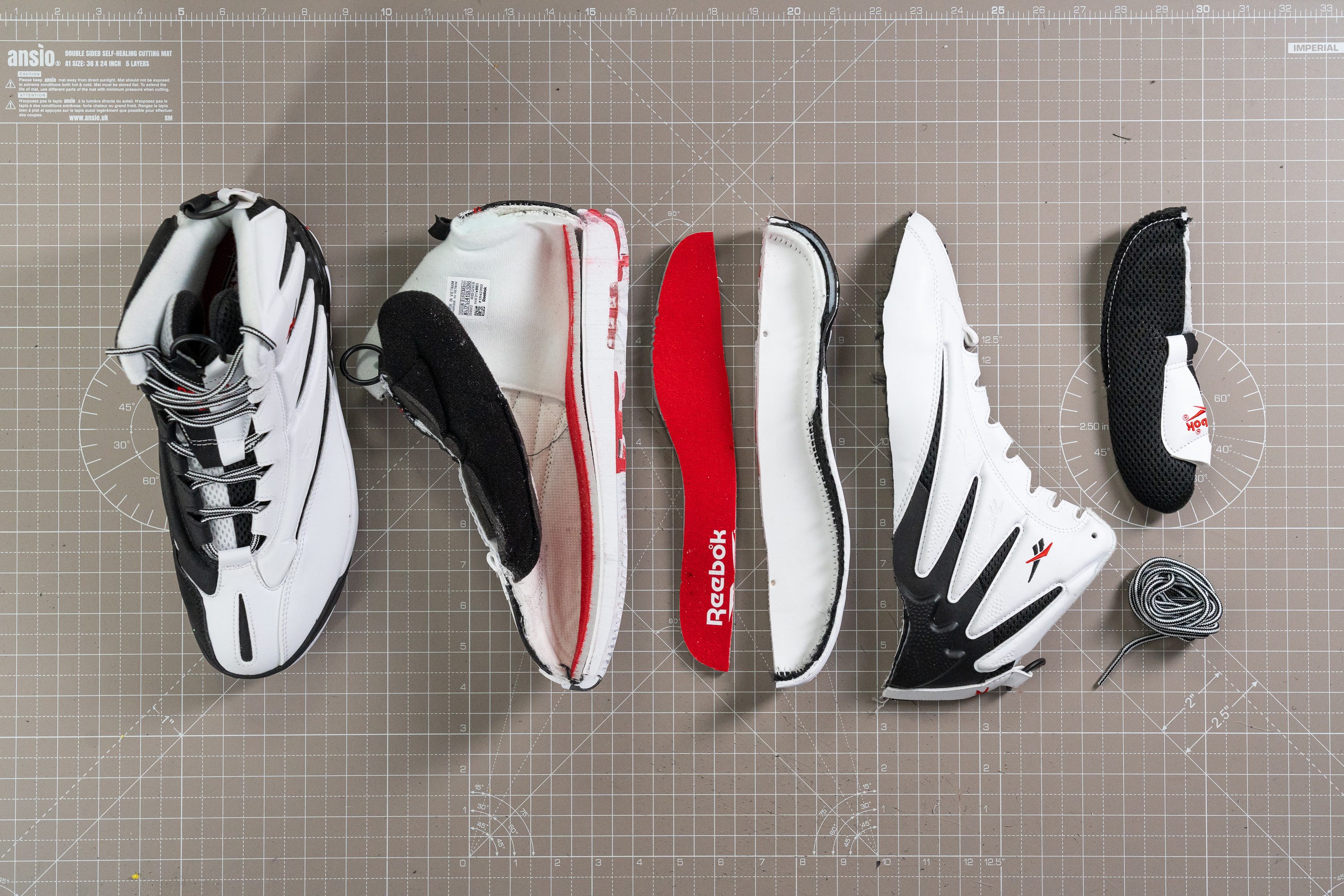
| Blast | Yes |
Tongue padding
Everything about the Reebok Blast is exaggerated, including the tongue! Our caliper shows a whopping 14.9 mm of padding!
Another shoe in our lab that comes close to that measurement is the Reebok Question Mid (14.3 mm).
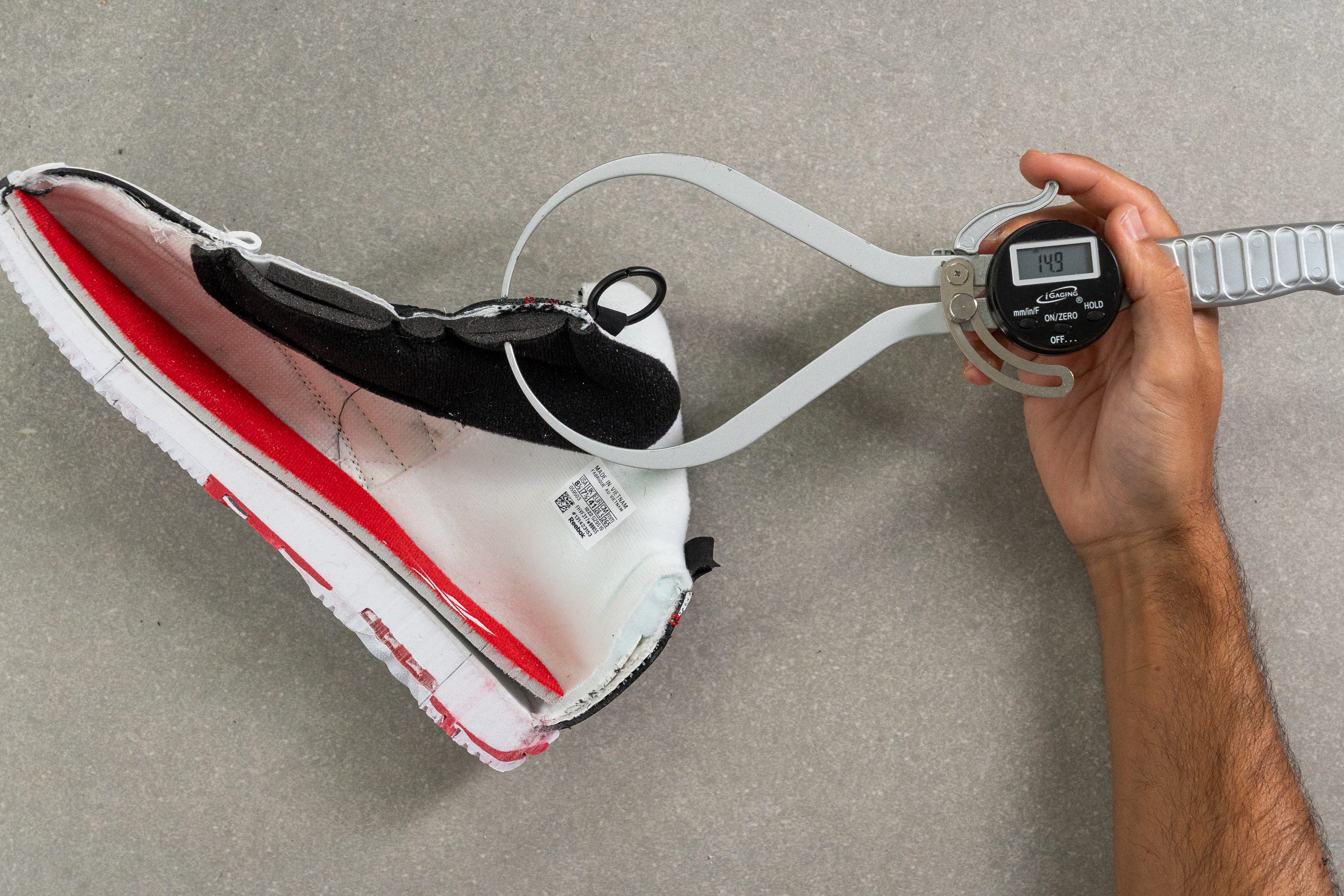
| Blast | 14.9 mm |
| Average | 9.3 mm |
Tongue: gusset type
There are no gussets or attachments on the sides of the tongue. But tongue sliding was never an issue given its gigantic padding.
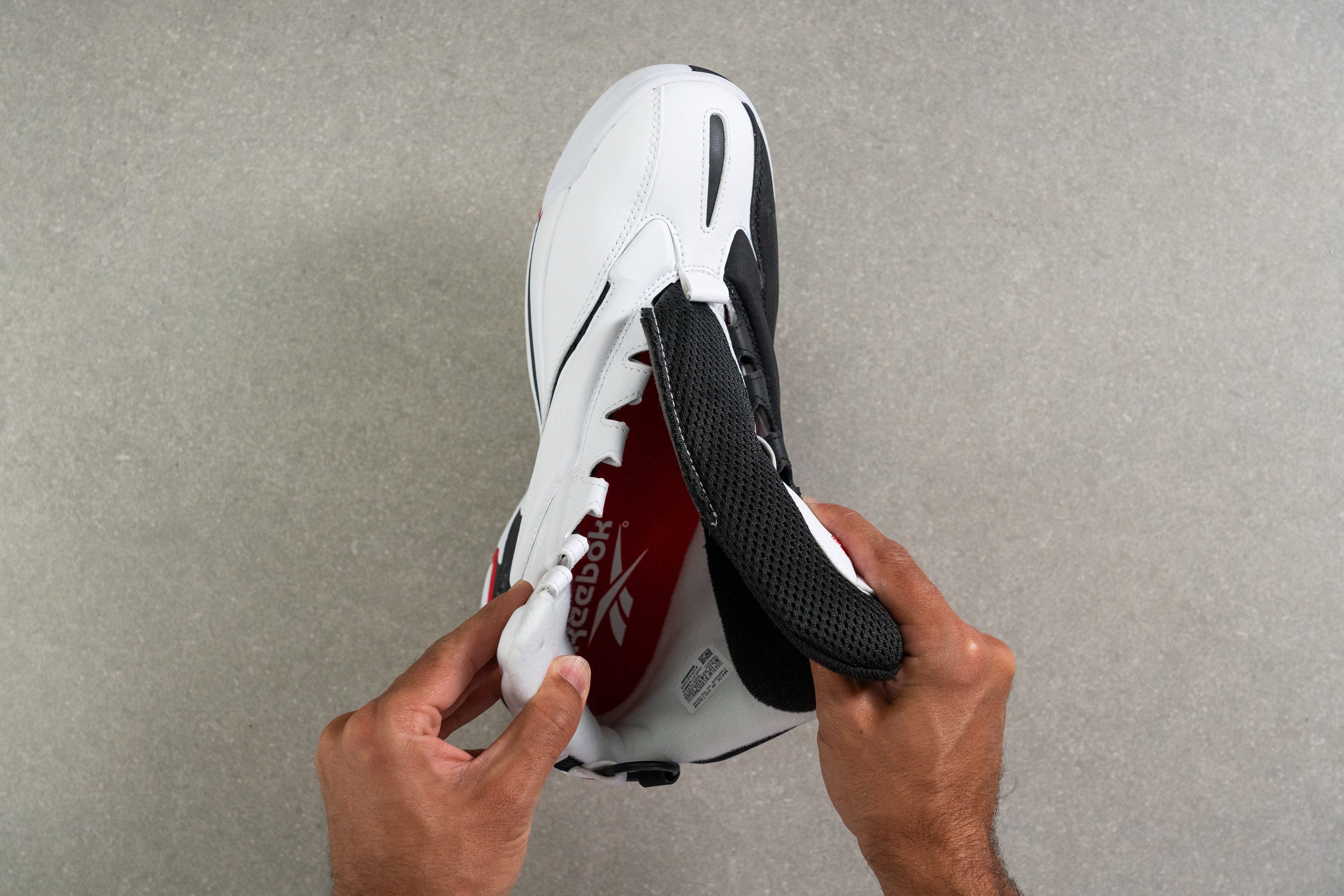
| Blast | None |
Heel tab
The Blast features two funky ring-like pull tabs on both sides of the collar. They were definitely helpful for sliding into the shoe's extra plushy interiors.
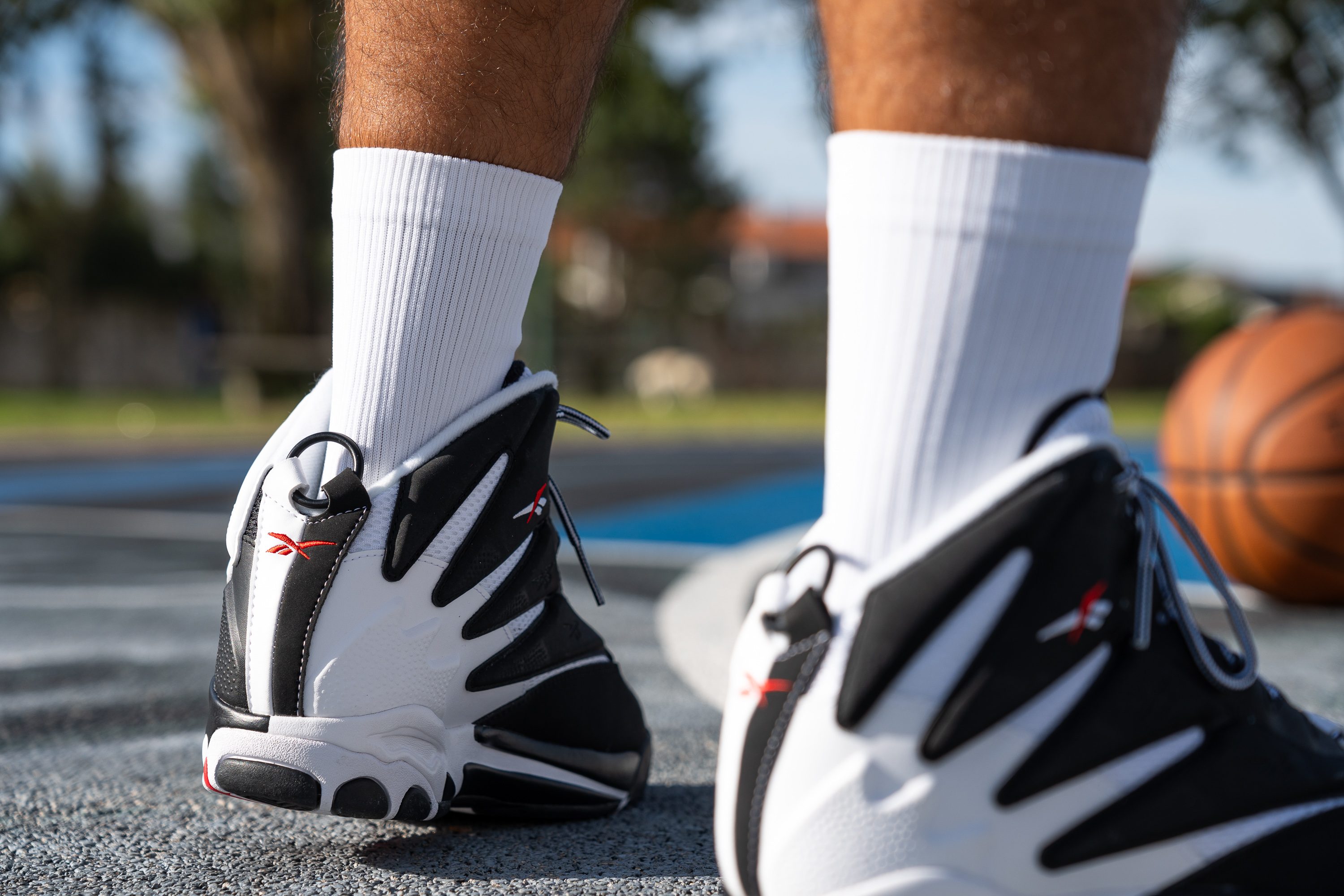
| Blast | Finger loop |
Background
The Reebok Blast was initially released in 1996. It was famously worn by Nick Van Exel, a point guard, when he was still with the Los Angeles Lakers. In 2011, Reebok reached out to rap superstar Meek Mill to endorse the shoe as a fashion statement. The first retro release of the shoe was in November 2014 at $120.
The Blast was part of the famous Mobius collection which also includes silhouettes like the Shaqnosis, the Big Hurt, and the Kamikaze.
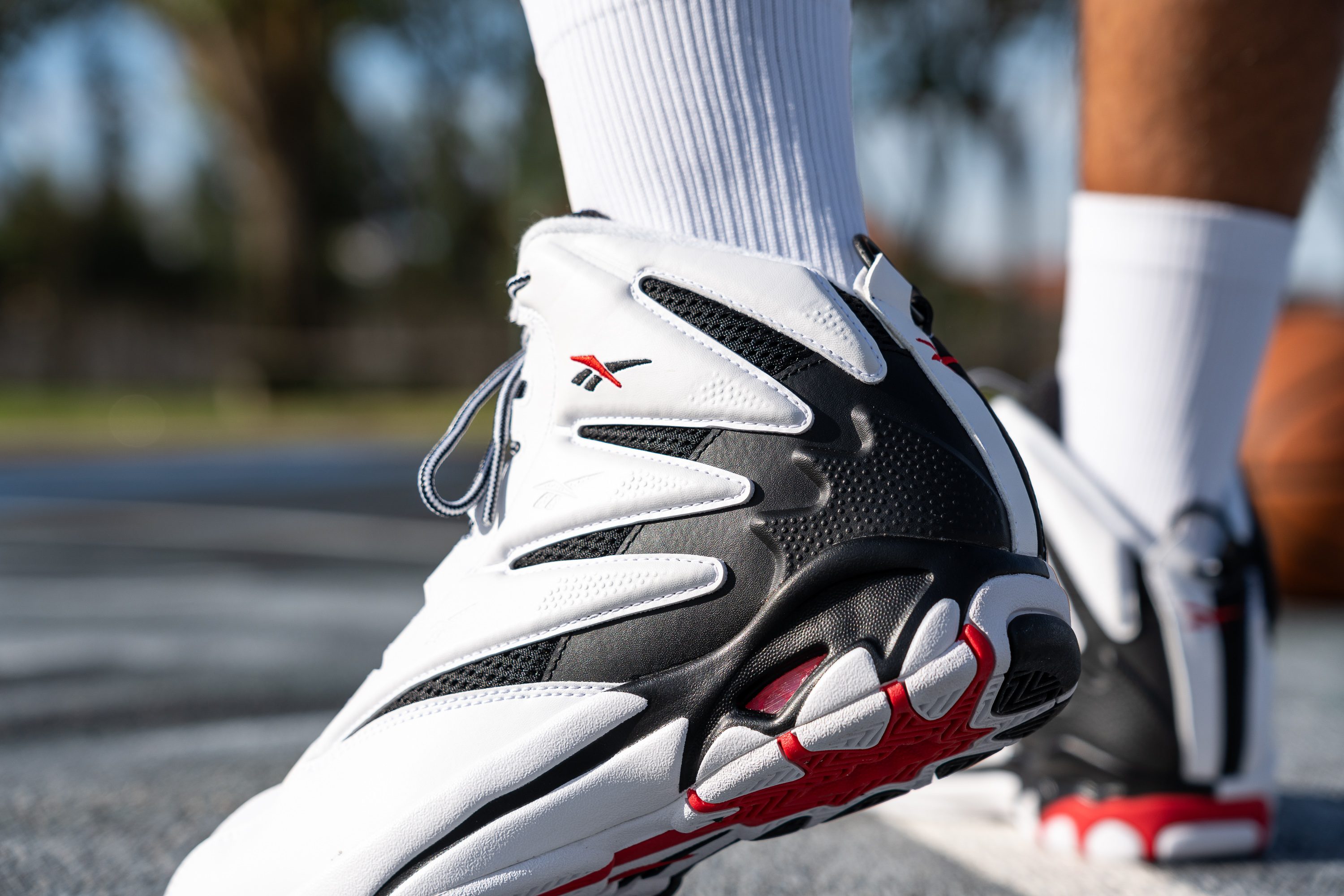
One really cool design trick of the Reebok Blast is its 50-50 colorway. The color on the lateral side contrasts with the color of the medial side. Reebok’s vector logo is on every side of the shoe. The rear panel has a blast-like design that perfectly alludes to the shoe model’s name.
